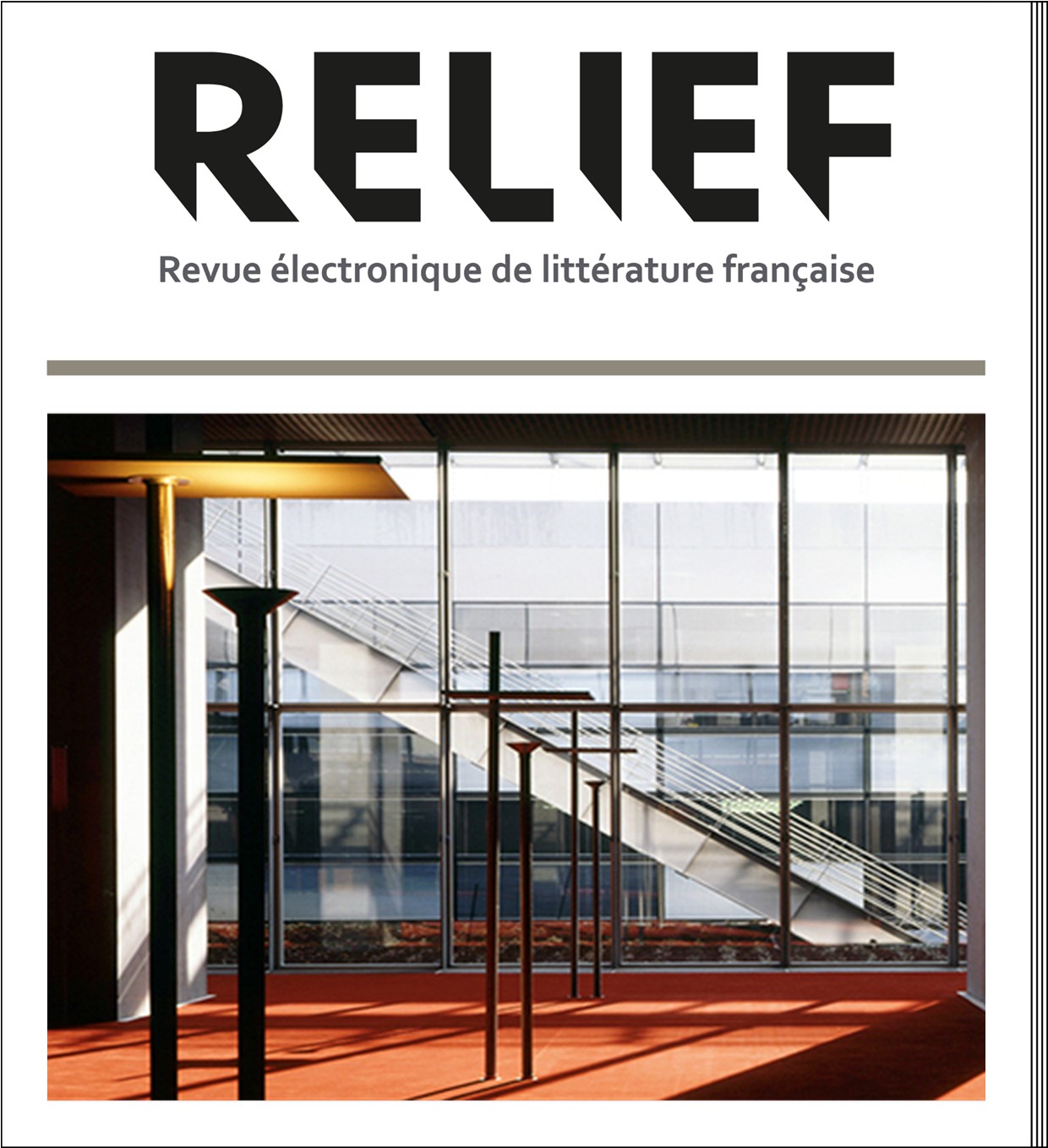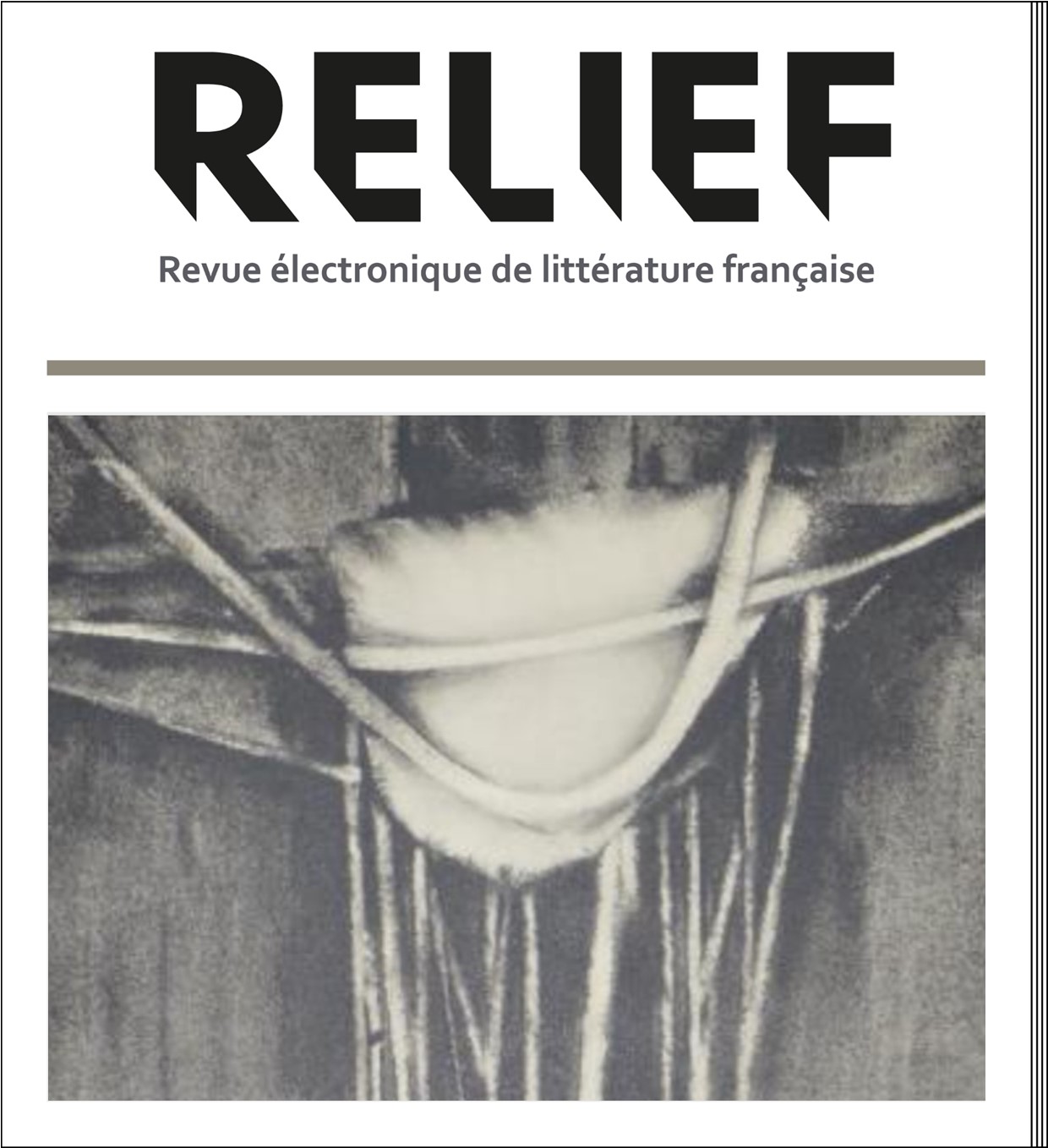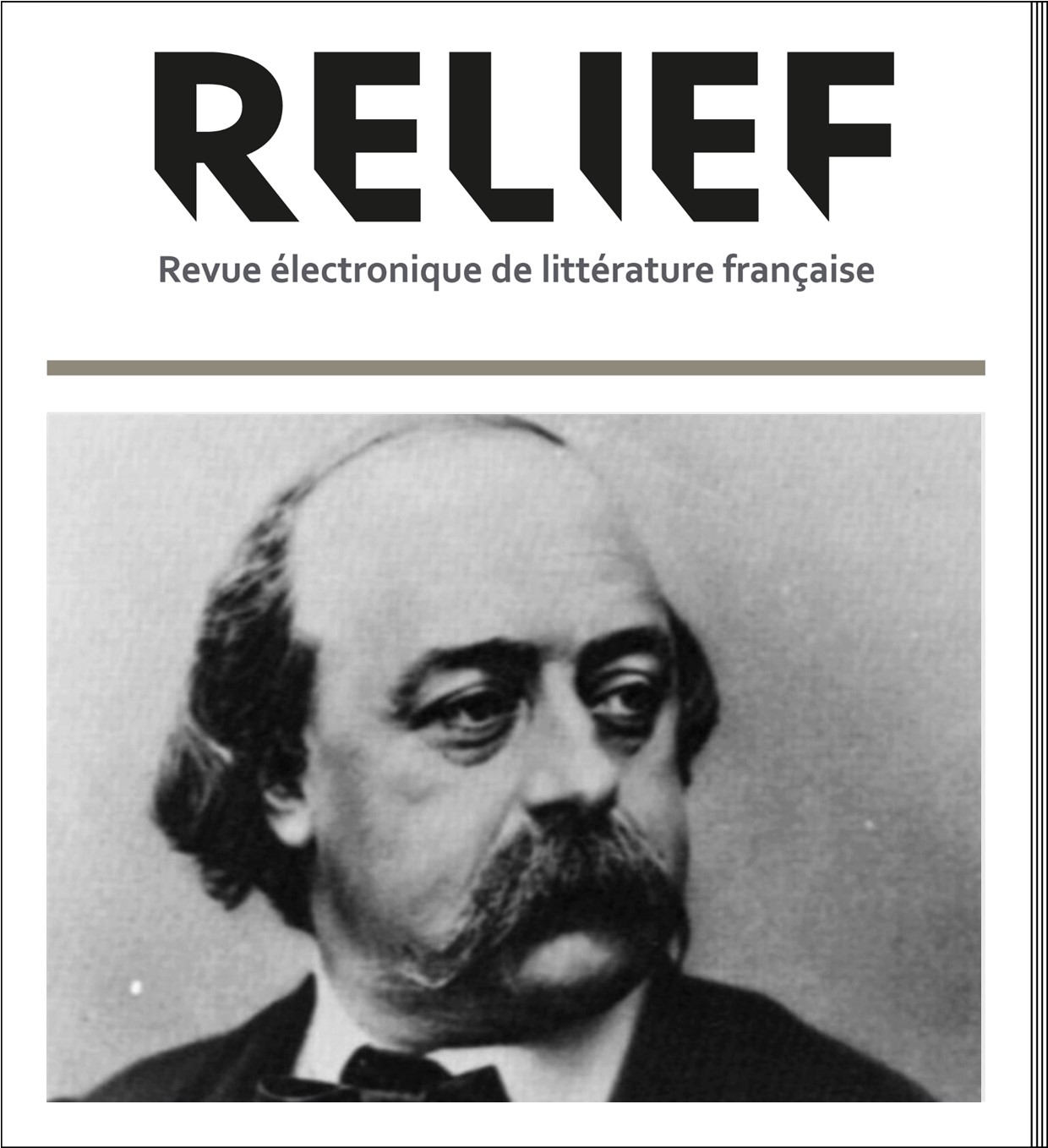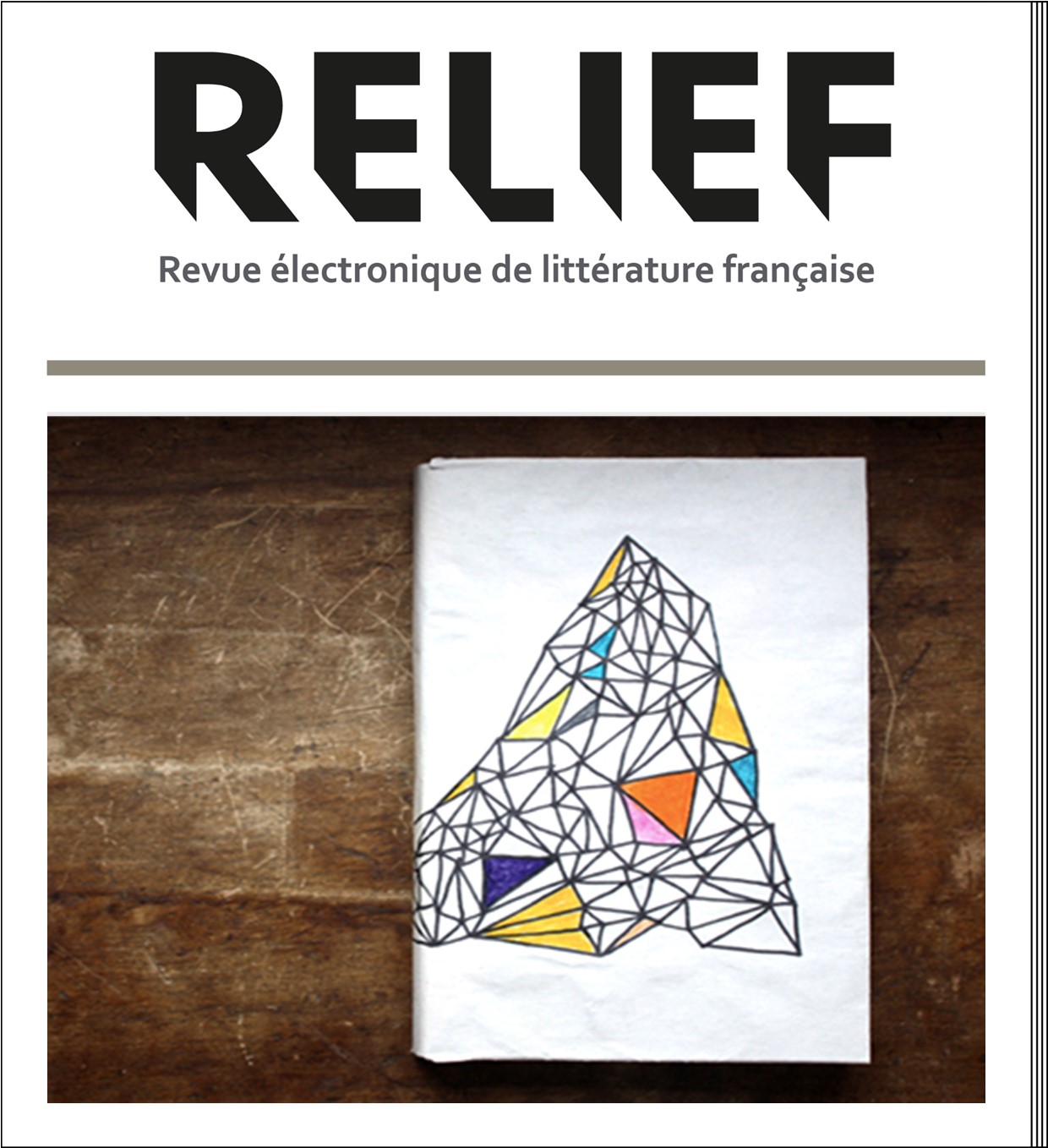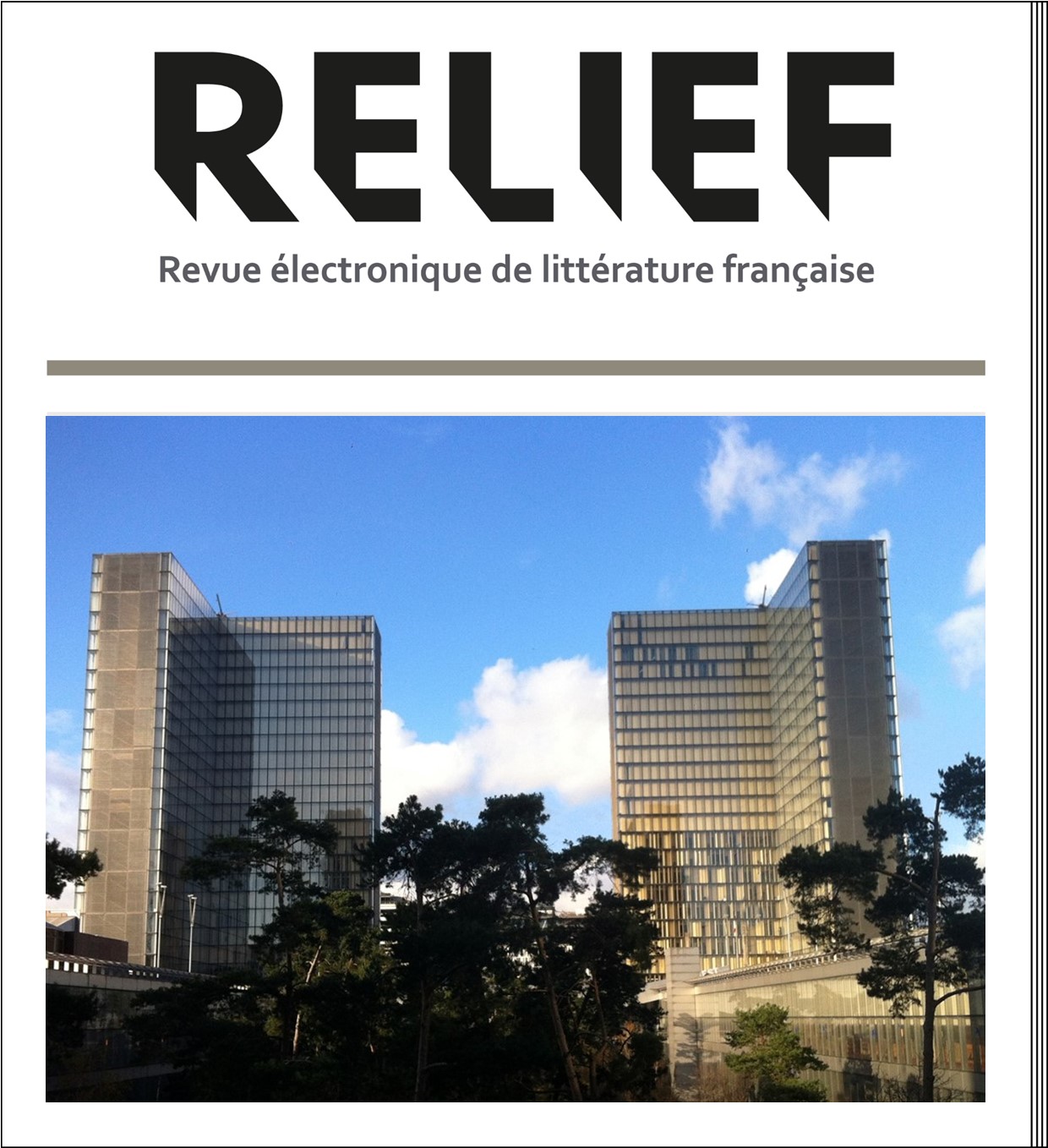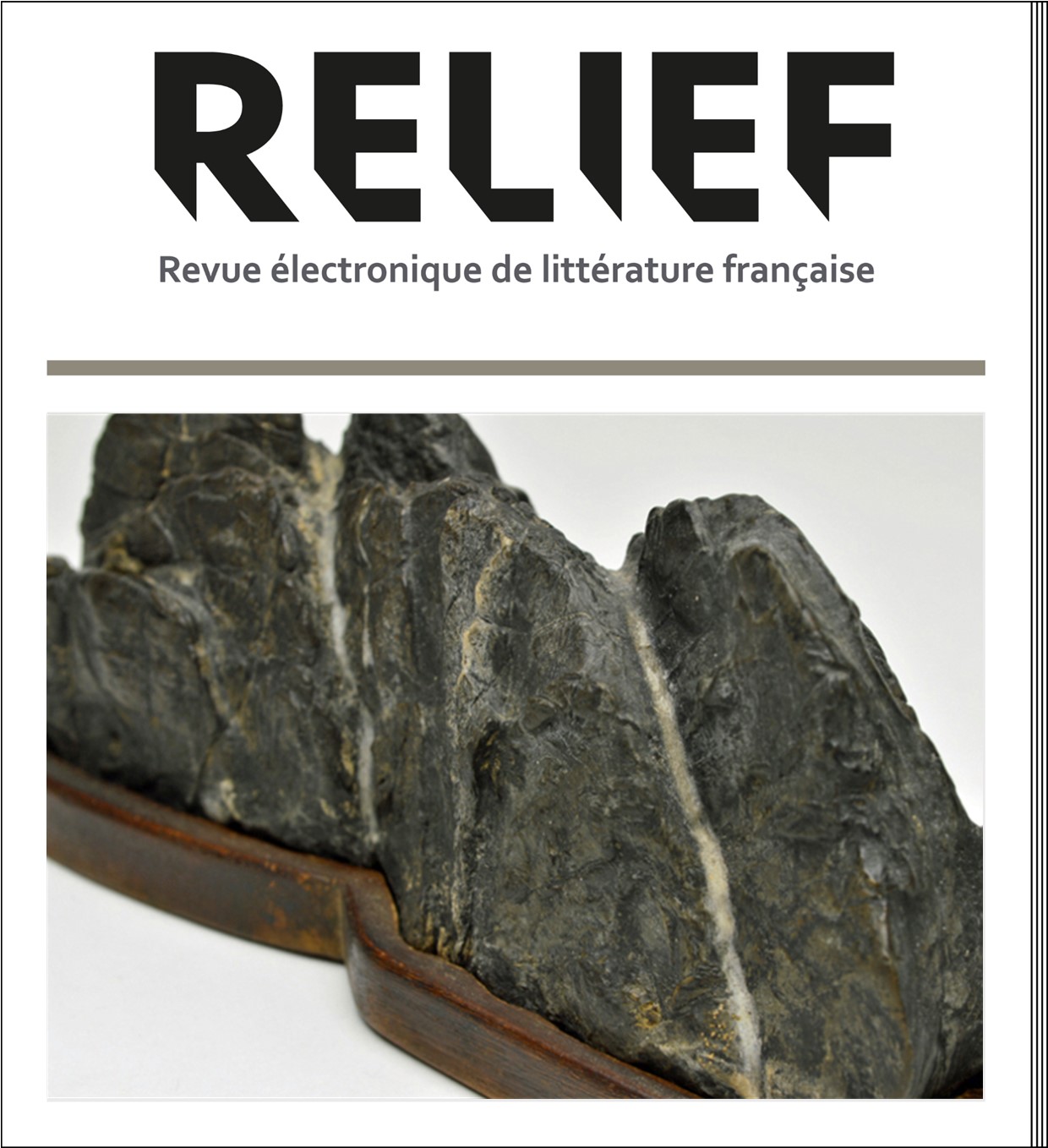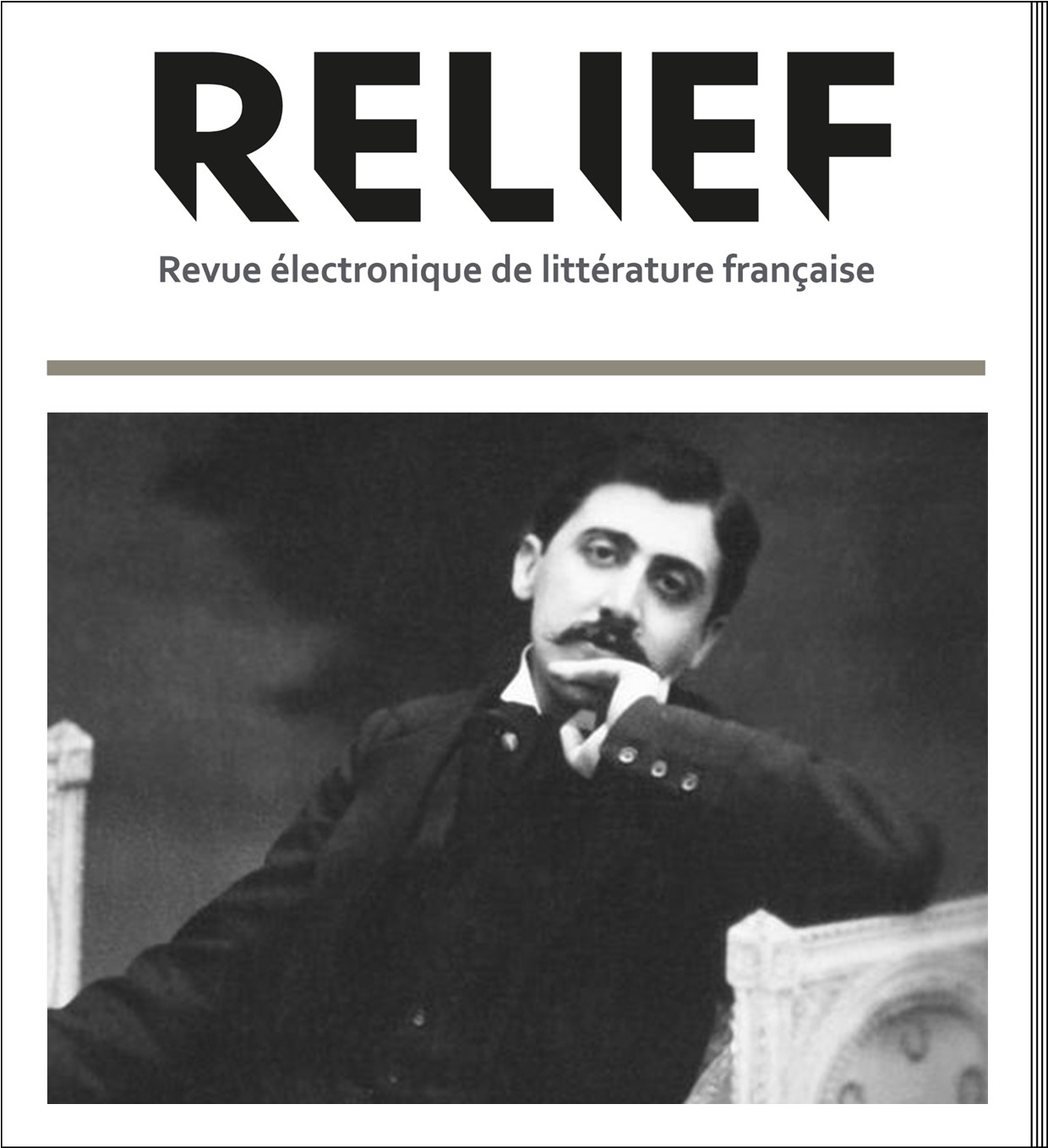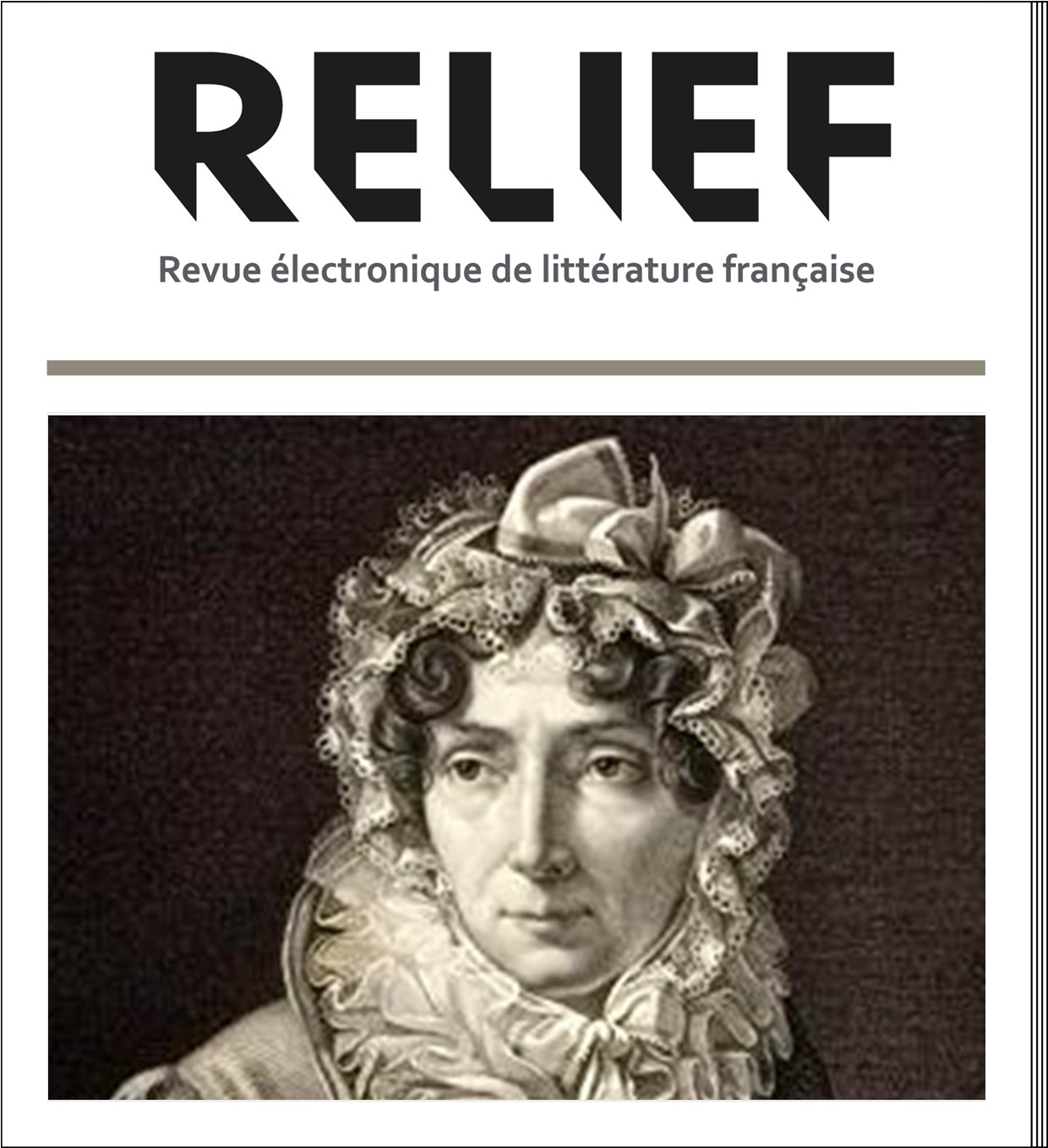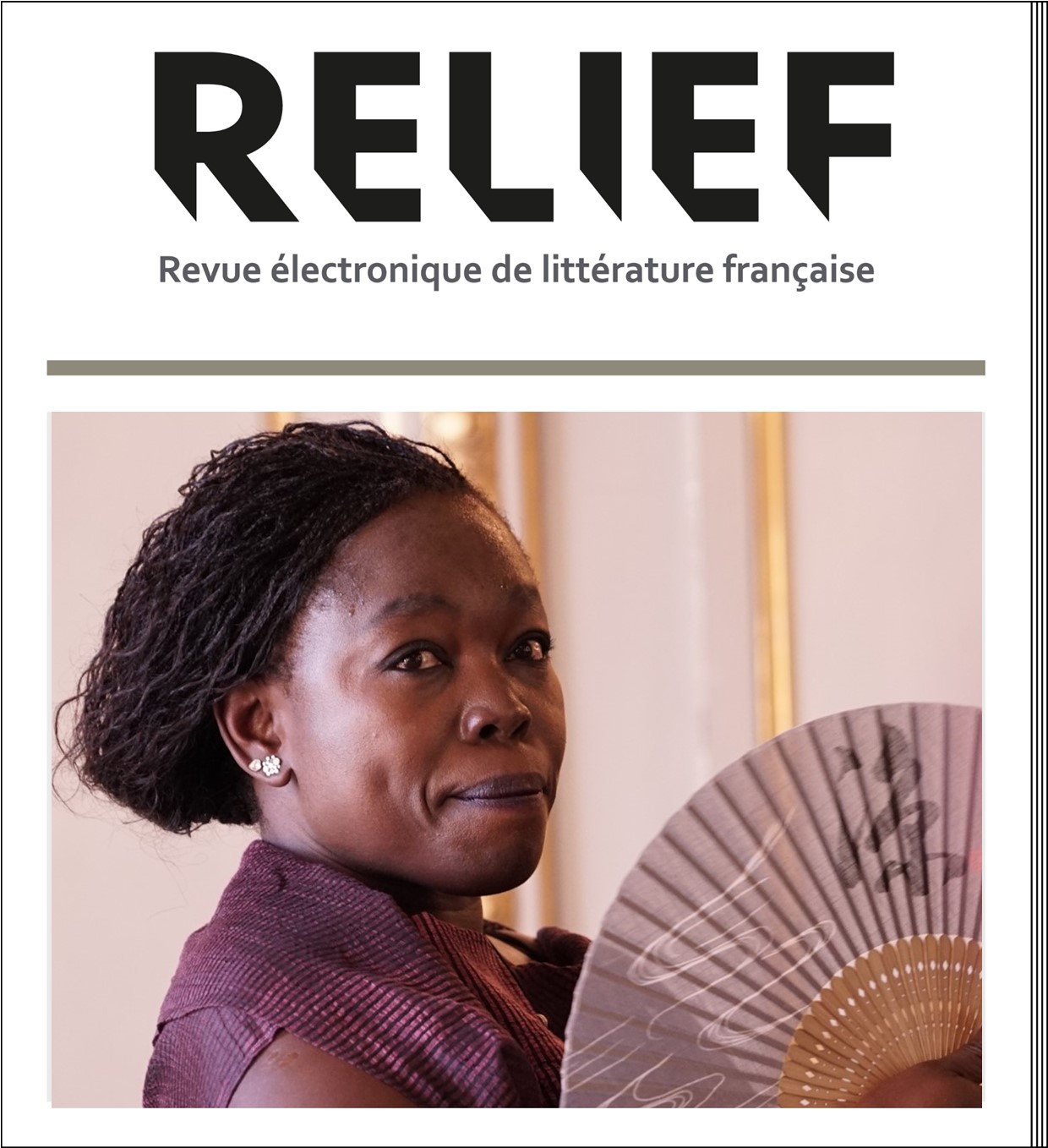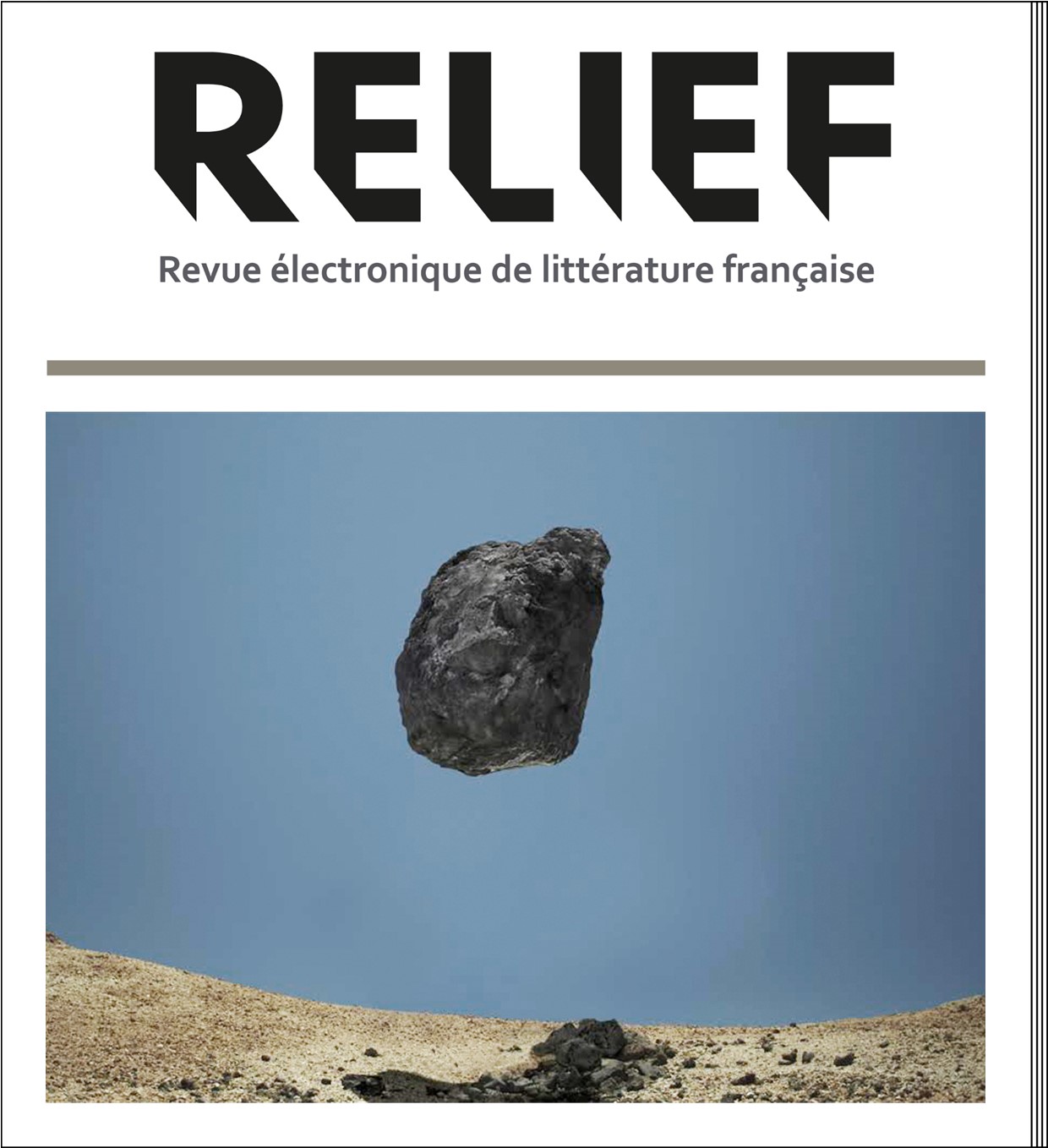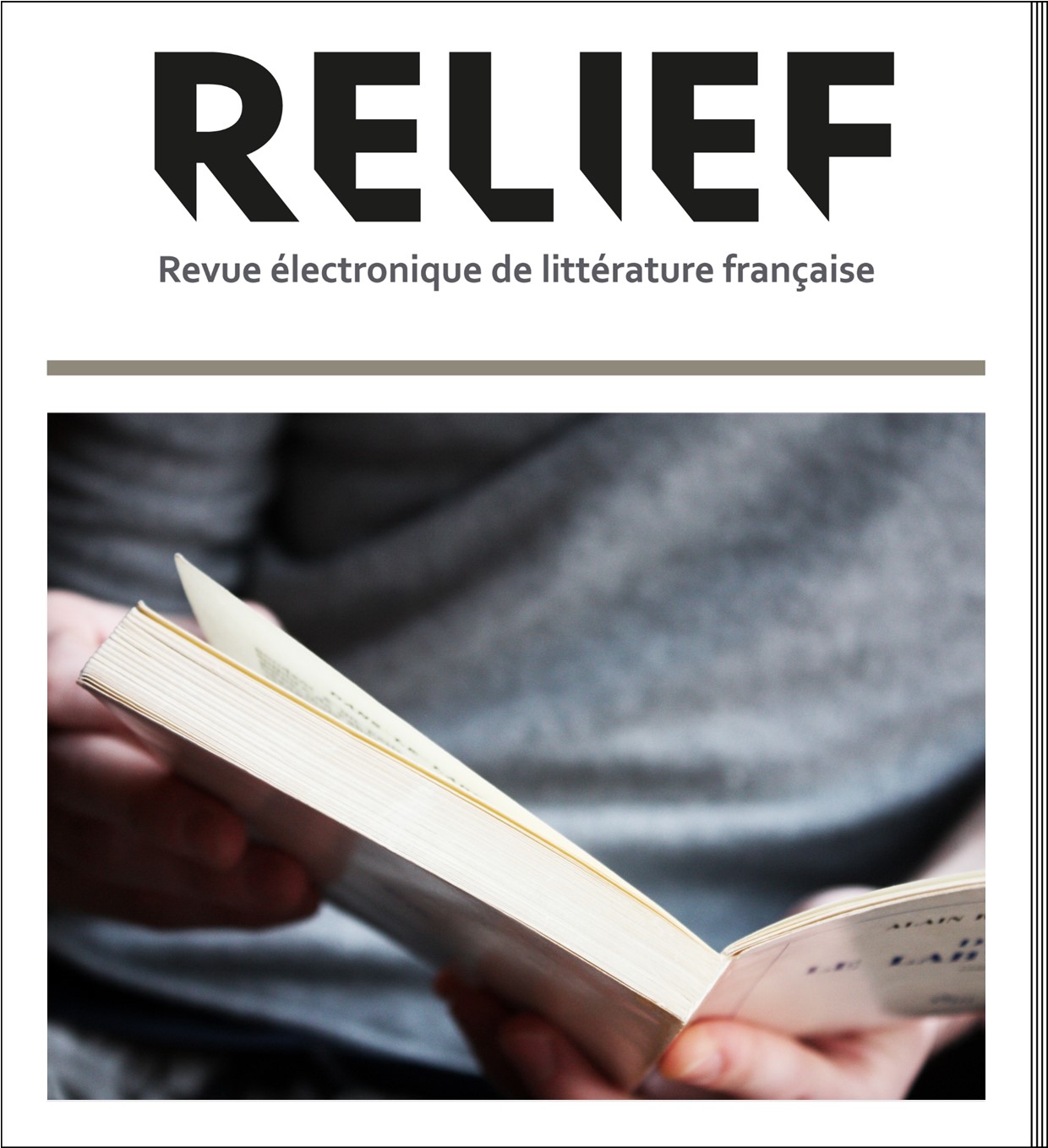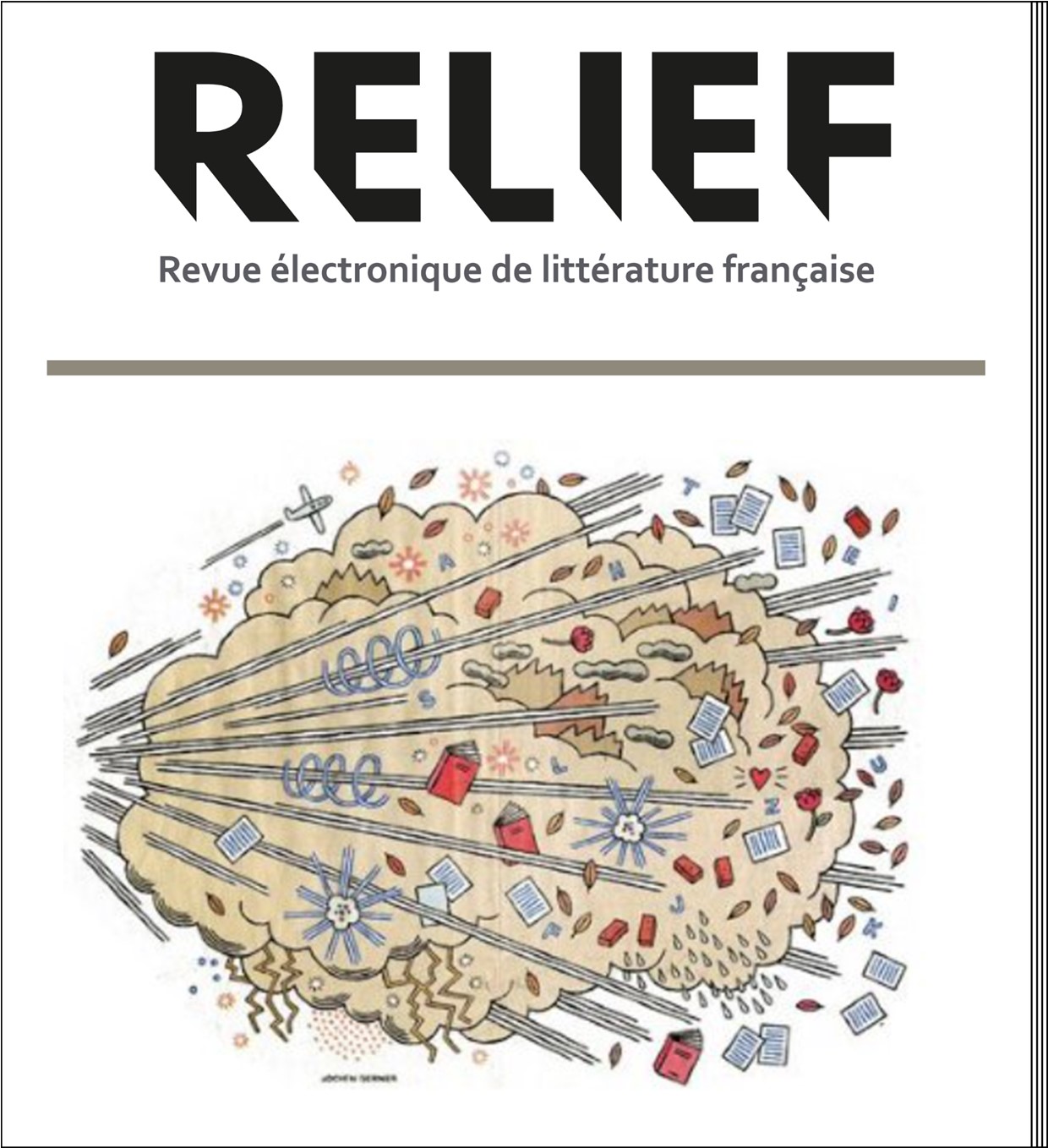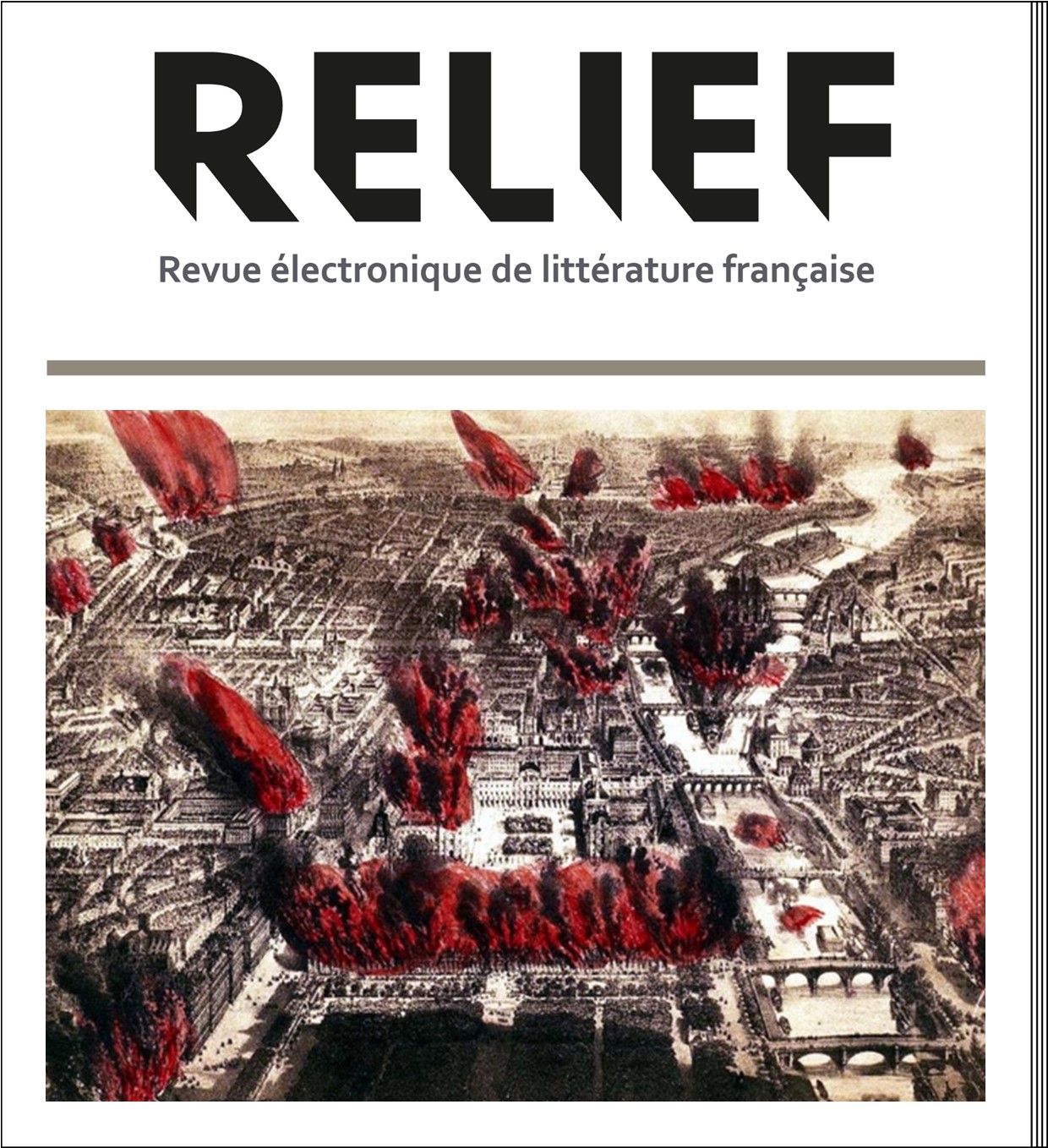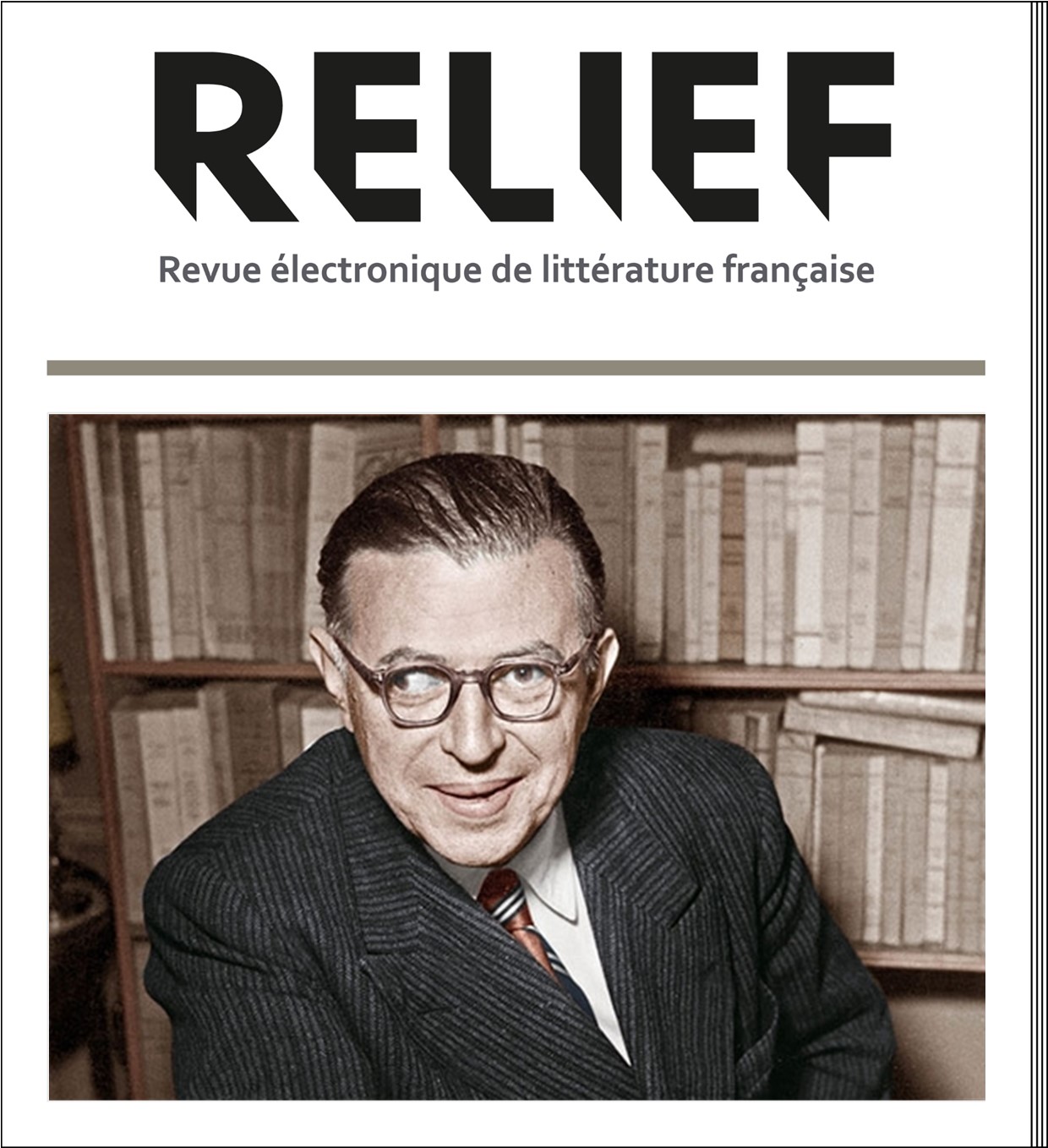Archives
-
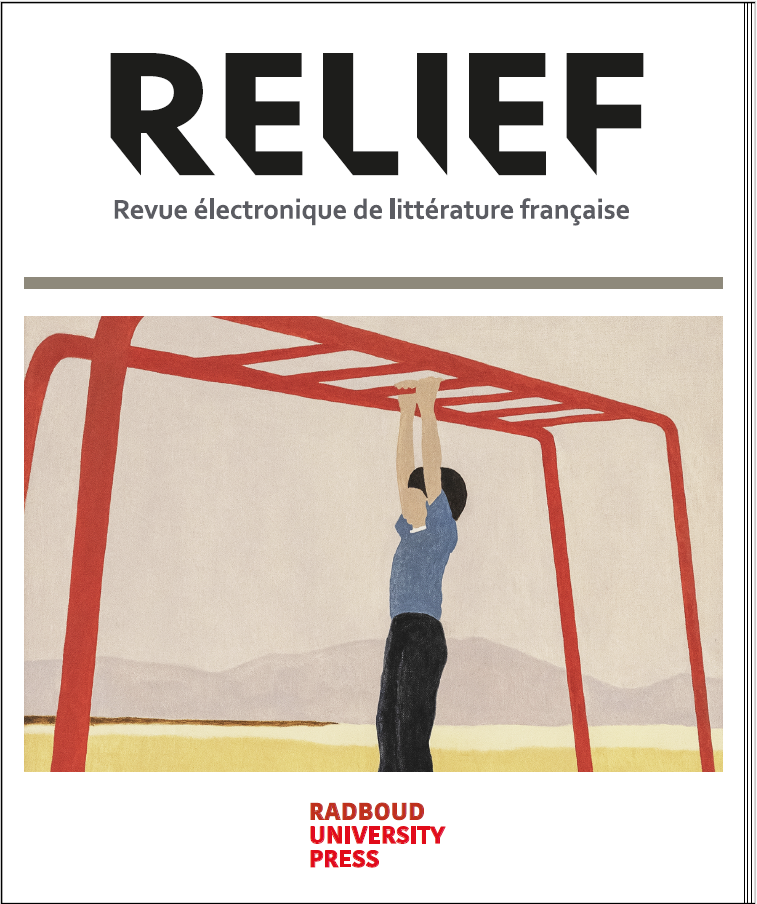
Child’s Play: Autobiography and Children’s Literature
Vol. 19 No. 2 (2025)Edited by Arnaud Genon and Régine Battiston
Is self-writing compatible with children’s literature? The question may seem paradoxical, since autobiography as theorized by Philippe Lejeune has long been conceived for an adult readership. Few texts for young readers therefore fall strictly within this genre. Yet children’s literature abounds in forms inspired by self-writing — first-person narratives, fictional diaries, epistolary novels or fabricated testimonies — all of which aim to create a sense of closeness with the reader. The expressed subjectivity produces an illusion of authenticity that fosters identification and empathy, while playing with the boundaries between fiction and truth. The “I” that speaks in these texts does not directly refer to the author; it stages a narrative voice that replays or subverts autobiographical codes through a play of masks, revelations and concealments. This partially or deceptively autobiographical “I” thus becomes a tool for exploring identity fractures, cultural tensions or intimate wounds, as well as for articulating family or social violence and sketching paths toward resilience. In this sense, autobiographical fiction opens a space for expression and recognition, while introducing young readers to the complex interplay between memory, imagination and the truth of the self.
-
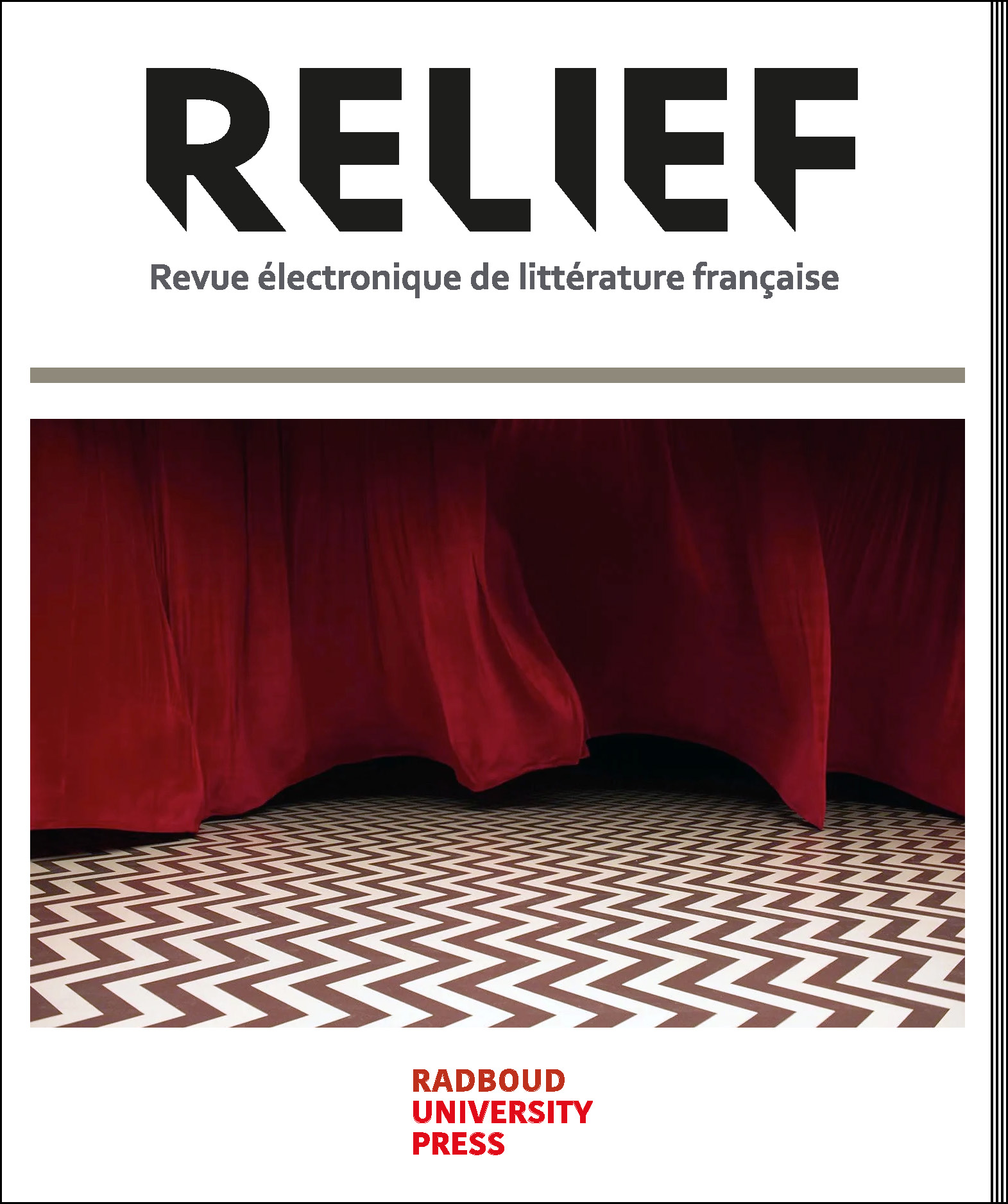
Good taste tested. Metamorphoses of literary cinephilia
Vol. 19 No. 1 (2025)Edited by Fabien Dubosson et Maaike Koffeman
Is there a specifically literary way of loving cinema? The question deserves to be asked, because while the relationship between the seventh art and literature is now a field of research in its own right, the status of the writer as a ‘cinephile’ has been examined less often than the role of adaptation or the figure of the writer-cinematographer. Yet cinephilia is so insistent in the French literature of the twentieth and twenty-first centuries that we can speak, following Fabien Gris, of a veritable ‘literary cinephilia’. The many expressions of this are to be found in essays and criticism, autobiographical and intimate writings, poetry and, of course, fiction. What's more, this cinephilia has never ceased to metamorphose, taking on different values as a function of technical developments in the medium, but also of changes in the meaning of the term “cinephilia” itself and the issues associated with it. Above all, cinephile writers have contributed to the war of “tastes” that has most often accompanied the affirmation of cinema as an art form in its own right. It is this evolution of “literary cinephilia” and the configurations that have made it possible that this issue of Relief would like to map out - obviously partially, but based on contrasting and perhaps unexpected examples.
-
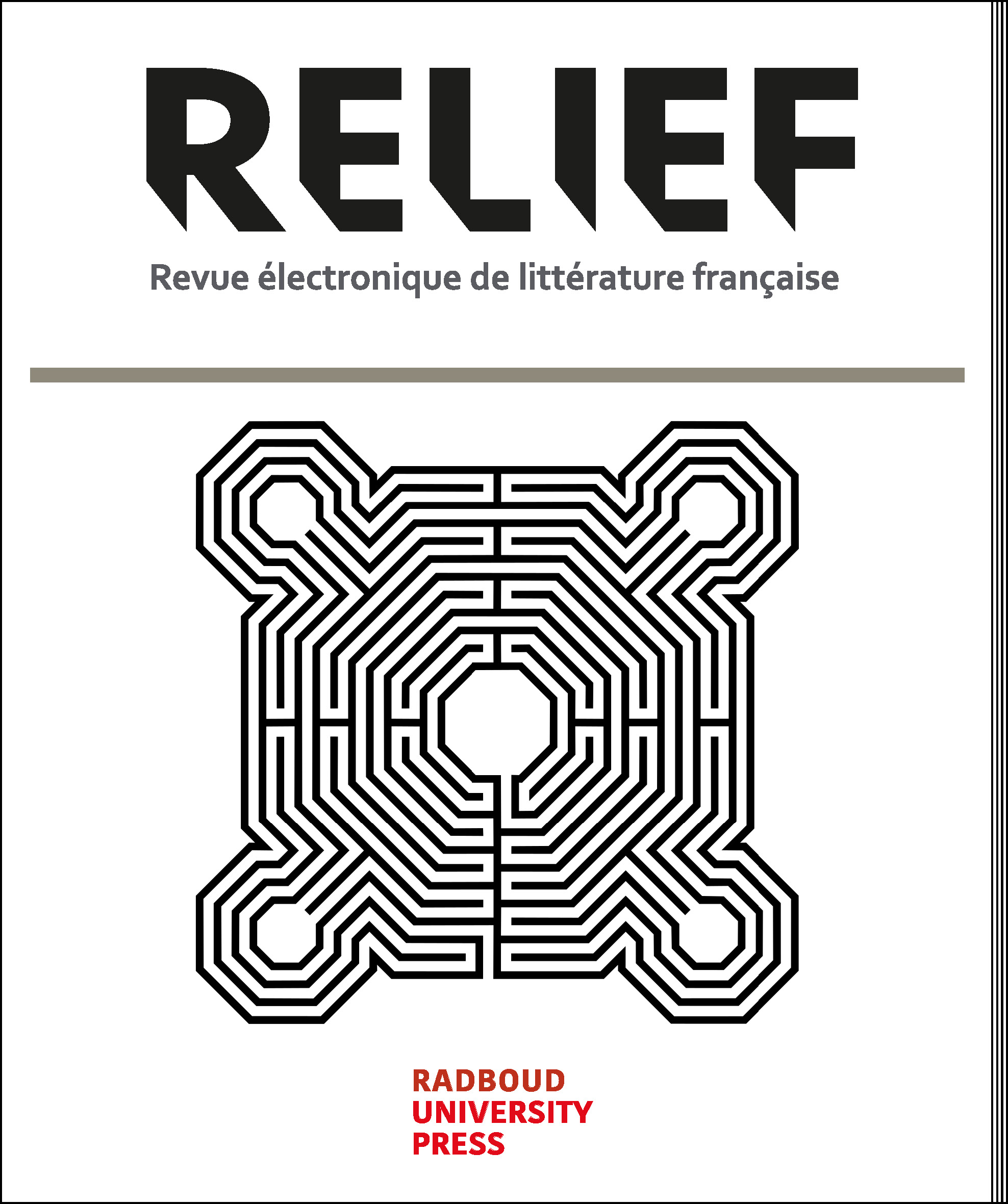
The Literarization of Heritage
Vol. 18 No. 2 (2024)Edited by Mathilde Labbé and Marcela Scibiorska
Literature has been part of France's national heritage since the nineteenth century, and as a result it has been given the ability to give heritage status to other objects as well. As such, it is often used to legitimise and promote works, places, discourses, practices and individuals. Citations, figurations, evocations: literary works circulate outside the field from which they originate, carrying with them values, imaginaries and connotations that are reinvested in the objects that actualise them. It is generally on their symbolic capital, rather than their critical function, that the operations of selection, but also of conservation, mediation or transmission that contribute to this process of patrimonialisation are based.
But how are we to understand the transfers of value that underpin these exchanges when literature is mobilised to defend objects that are part of a heritage that has been or is being built up, and therefore part of an economy of singularities? Beyond the dynamics of legitimisation, this special issue aims to explore the economic, emotional, communicational and political implications of mobilising literature in the space of the art book, the museum, the monument or the nature reserve. Its aim is to analyse the relationships of exhibition, promotion and instrumentalisation between literature and heritage, and to find out whether it is possible to identify any structural characteristics. The issue looks at the way in which these mobilisations redefine the functions of literature and ultimately contribute to heritage inflation, notably through the development of a multi-faceted form of literary tourism, which can be found in exhibitions, around national monuments, in luxury hotels or on cultural walks.
-
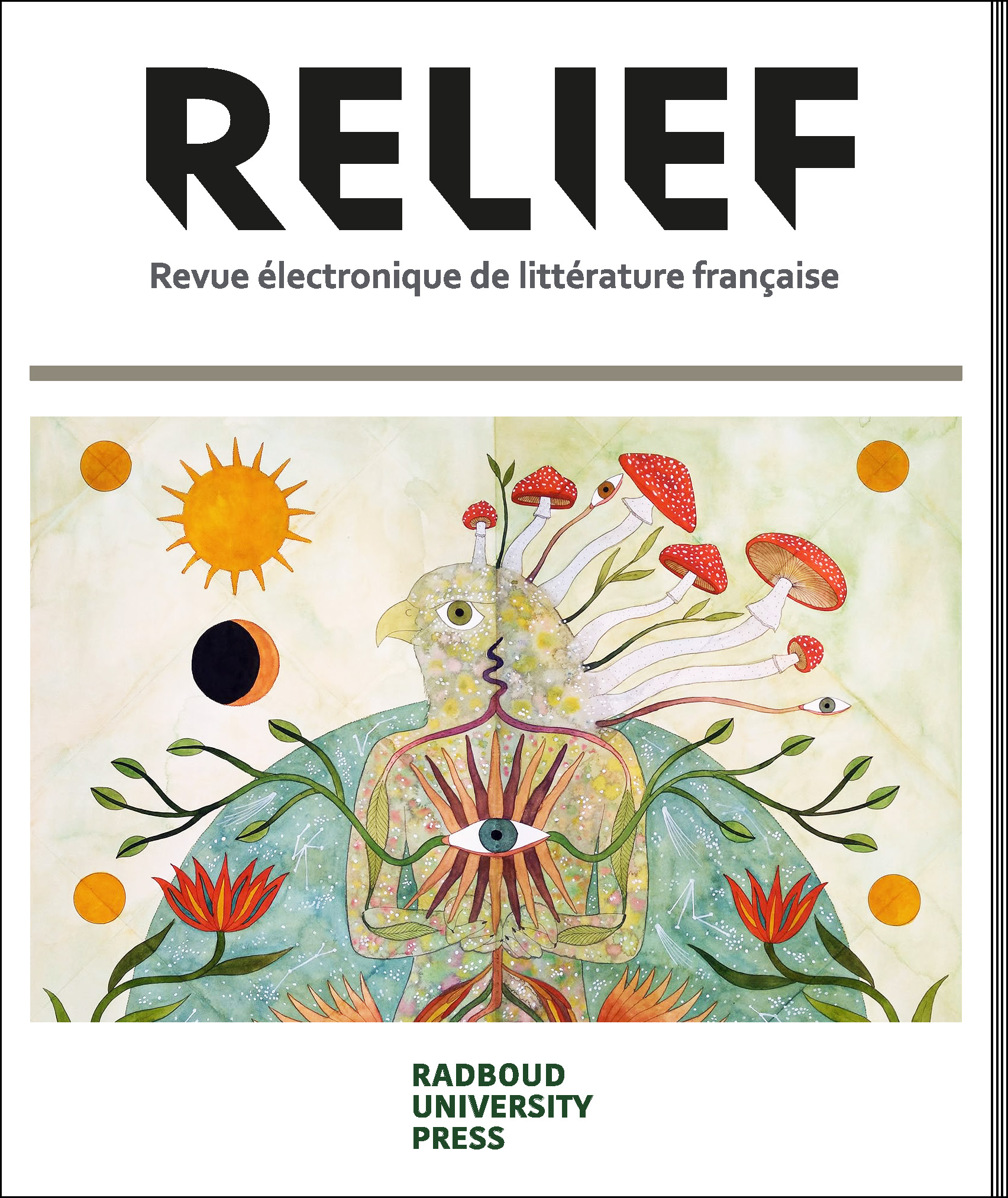
At the School of Life: teaching literature with environmental humanities
Vol. 18 No. 1 (2024)Edited by Aude Jeannerod, Morgane Leray and Olivier Sécardin
Environmental issues are leading to a global reconfiguration of our ways of being and thinking about the world, and this also applies to literary studies. Since every crisis calls for a decision to face the challenge of adaptation, this issue of Relief takes stock of the latest research driving 'environmental humanities' and their didactics: their historicity, their potential, the hopes for renewal they hold out, the interdisciplinary hybridisations they are reinventing and the doubts about their ability to 'repair the world'.
-
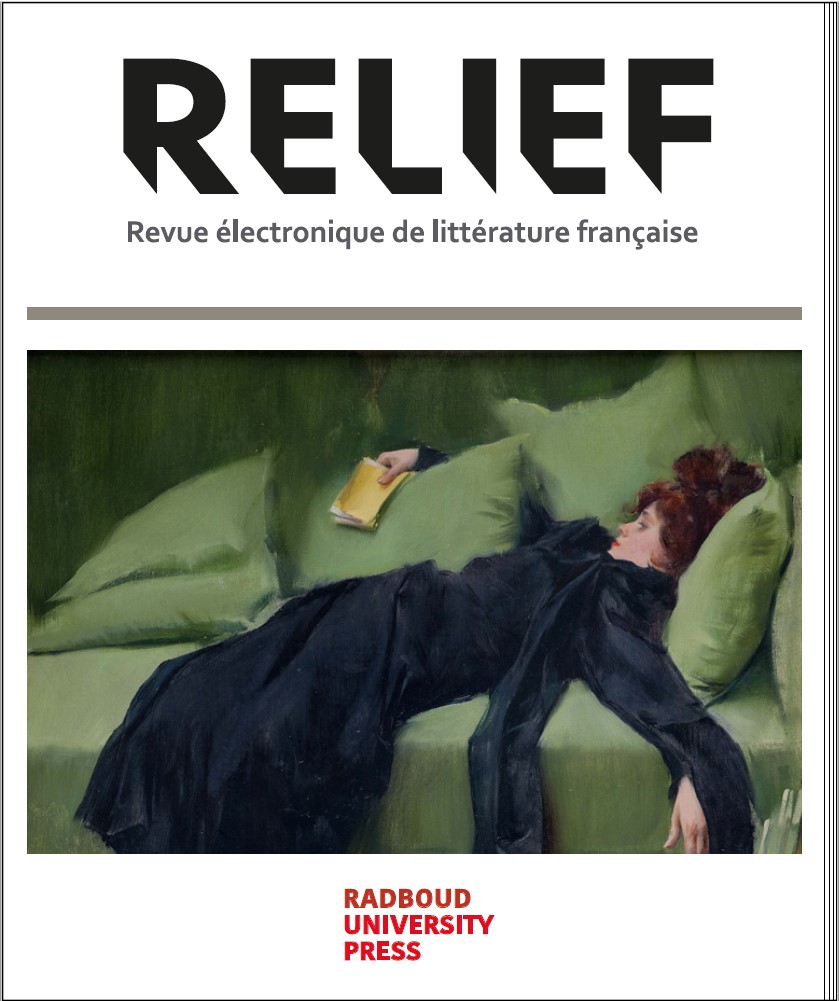
Is a woman a reader like any other ?
Vol. 17 No. 2 (2023)Edited by Maxime Decout and Estelle Mouton-Rovira
While women readers have long been associated, on the one hand, with a form of vulnerability, linked to the topos of the dangers of reading, and on the other with an eroticised vision of reading, it has to be said that the contemporary period is working to change these images. The development of feminist theories and gender studies, and the pragmatic inflection of reception theories are all new critical legacies that are changing the literary representation of women and, a fortiori, of women readers. Such figures enable us to think about reading practices through the prism of gender. The aim is to ask whether the female reader is a reader like any other, in order to explore the ways in which literature creates its own critical knowledge of gender.
-
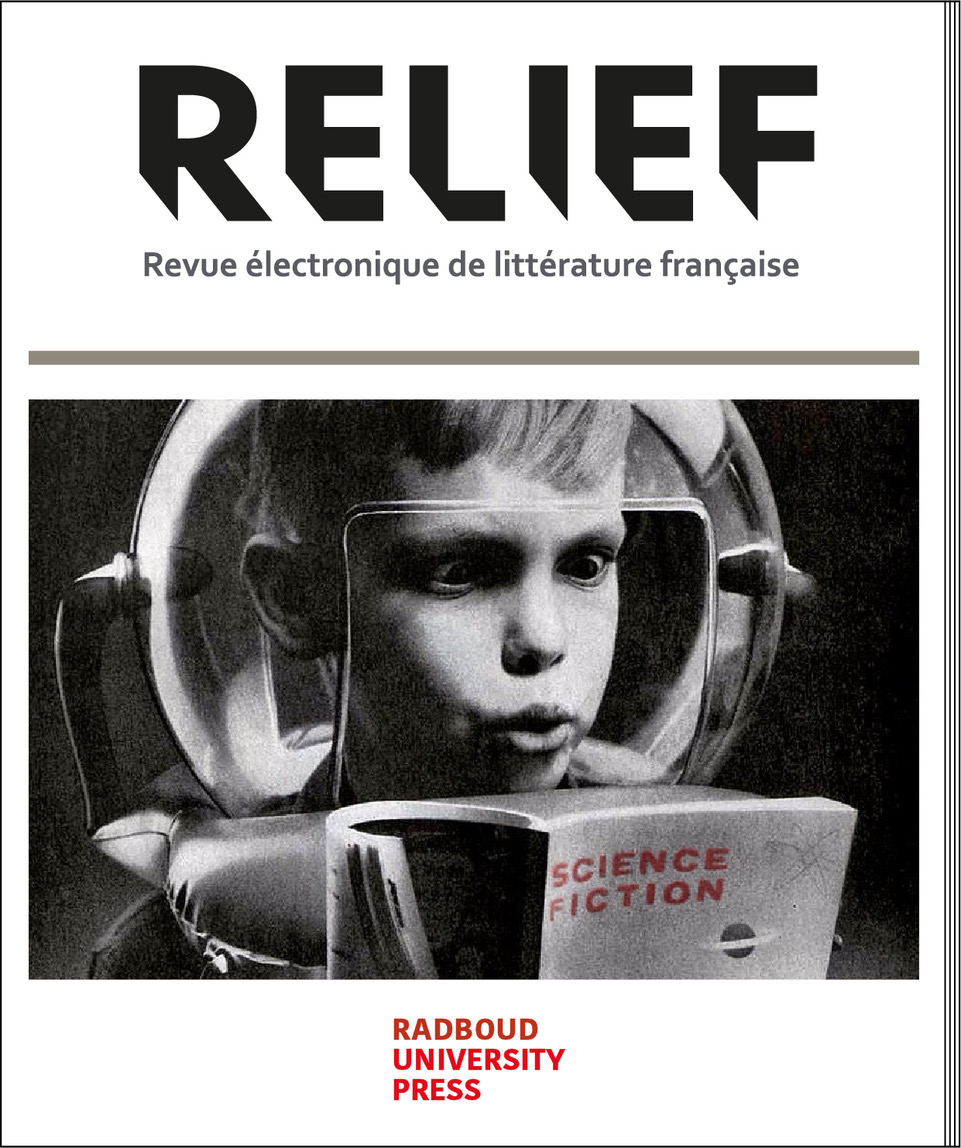
Science fiction and the teaching of politics
Vol. 17 No. 1 (2023)Edited by Colin Pahlish and Gaspard Turin
Since the 1930s, science fiction has explored the many ways in which technologies influence our coexistences, to the point of proposing reconfigurations of the rules of society. In this and other ways, science fiction has regularly helped to renew our understanding of politics (« la » politique). This is obvious to its readers. What is less obvious is its ability to ask us questions about politics (« le » politique), in other words, about questioning and reinventing our ways of living as a community. If we are revisiting the age-old question of SF's ability to change the world, we are doing so here with a fresh approach: that of its teaching, which in all likelihood has become exponentially more popular in schools in recent years. By thinking of the classroom as a fertile ground for reinventing our future governance, we are preparing ourselves for this future, while at the same time developing a teaching methodology that incorporates the democratic principle more directly. The contributions in this issue all present ideas along these lines. If the time has come to broaden the reading of SF beyond the private and recreational, it is then also time to rethink this genre by giving it the institutional time and space it deserves, so that it becomes the vector of institutional, social, ethical and political change that we need and can ignore no longer.
-
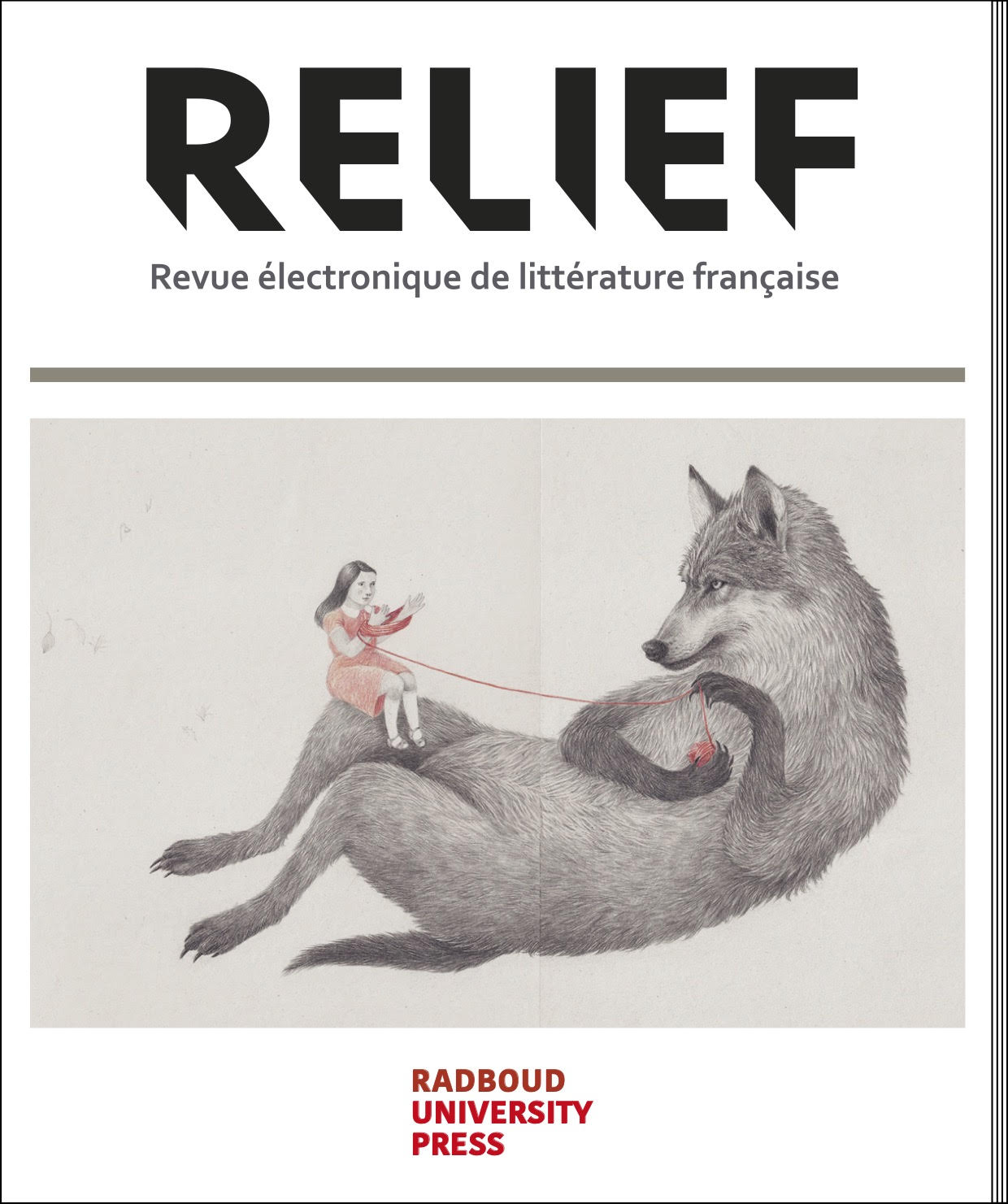
Olivia Rosenthal: literature on the look-out
Vol. 16 No. 2 (2022)Edited by Morgane Kieffer et David Vrydaghs
Since the publication of Dans le temps in January 1999 (Éditions Verticales), Olivia Rosenthal's work has continued to grow and taken various paths. These include novels, autobiographical works, performances produced with filmmakers, visual artists or composers, but also plays and essays that question the limits usually imposed upon literature. Enriching her texts with interviews, films or exercises that directly summon the reader, Rosenthal creates a destabilizing oeuvre, which oscillates between poles generally considered to be opposite: ironic and empathetic, cruel and tender, close and distant from the reader, cautious and bold, etc. This special issue aims to capture these apparent contradictions through one of the main dynamics that irrigate this leading contemporary work: a literature “on the look-out”, implying a constant vigilance both from the author as she writes and from her readers on a formal and esthetic level, as well as a capacity to welcome otherness without naivety or paranoia.
-
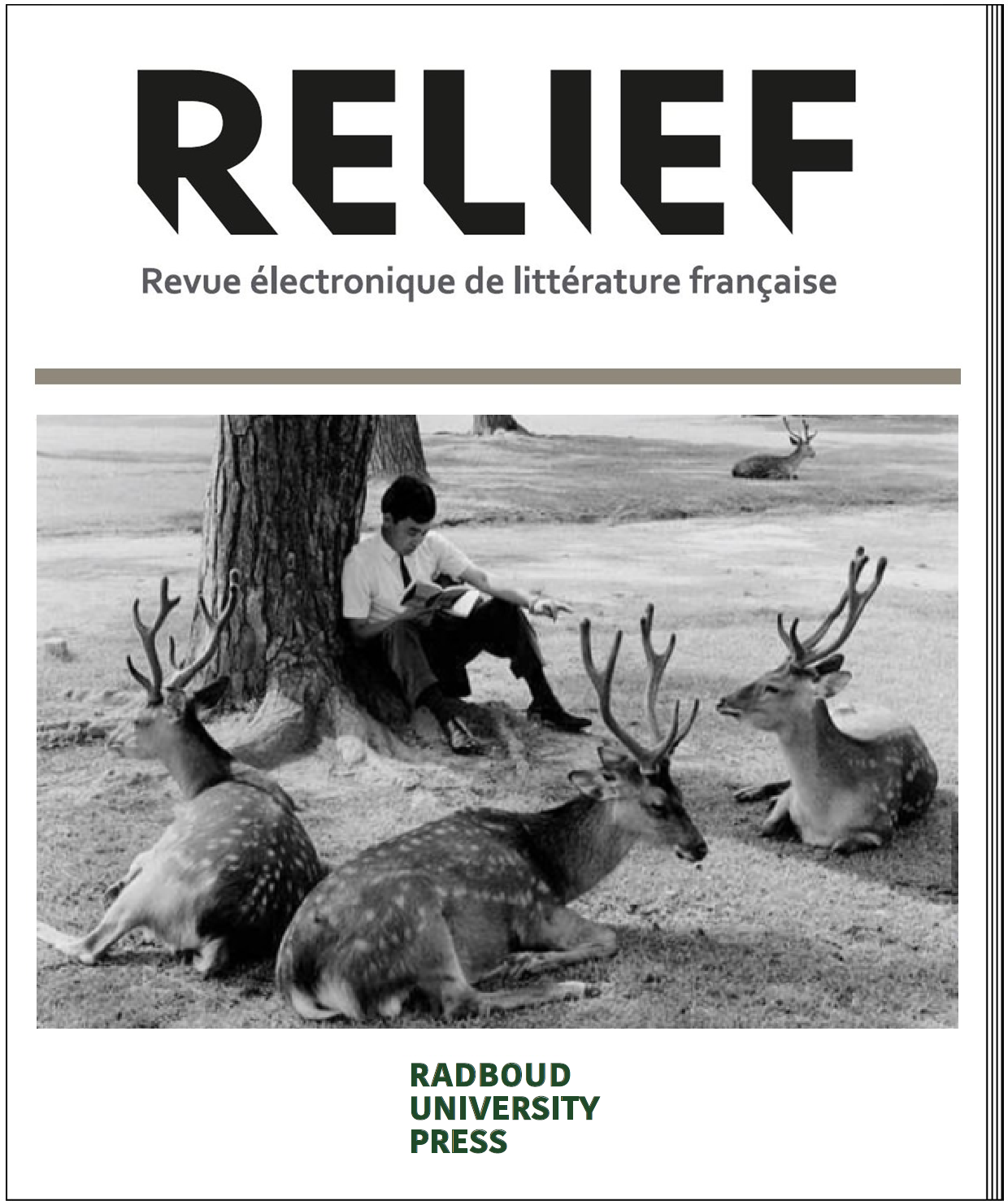
Crossed views on francophone literature and ecology
Vol. 16 No. 1 (2022)Edited by Aude Jeannerod, Pierre Schoentjes and Olivier Sécardin
The objective is to examine literary representations of the environment, that is to say, the discourse that man holds in his literary productions about the nature that surrounds him and the relationships he has with it. At a time when texts on environmental issues are multiplying, there is a twofold requirement: to explore contemporary French and Francophone literature, but also to return to older texts to examine them in the light of our contemporary ecological sensitivity.
-

Intertextualities in the works of André and Simone Schwarz-Bart
Vol. 15 No. 2 (2021)Edited by Kathleen Gyssels and Odile Hamot
This issue is devoted to the intertextualities, both upstream and downstream, that nourish and extend the works of André and Simone Schwarz-Bart: its aim is not only to demonstrate the varied influences of other writers on their novels, but also to highlight the Schwarz-Bartian influence on the works of authors and artists who published after them. In its entirety, the issue touches on the five types of transtextual relations identified by Genette and opens up on the interartistic thresholds, the different relations between publishing and re-publishing, finished and unfinished work, and even its crossovers with the ninth art and music.
-
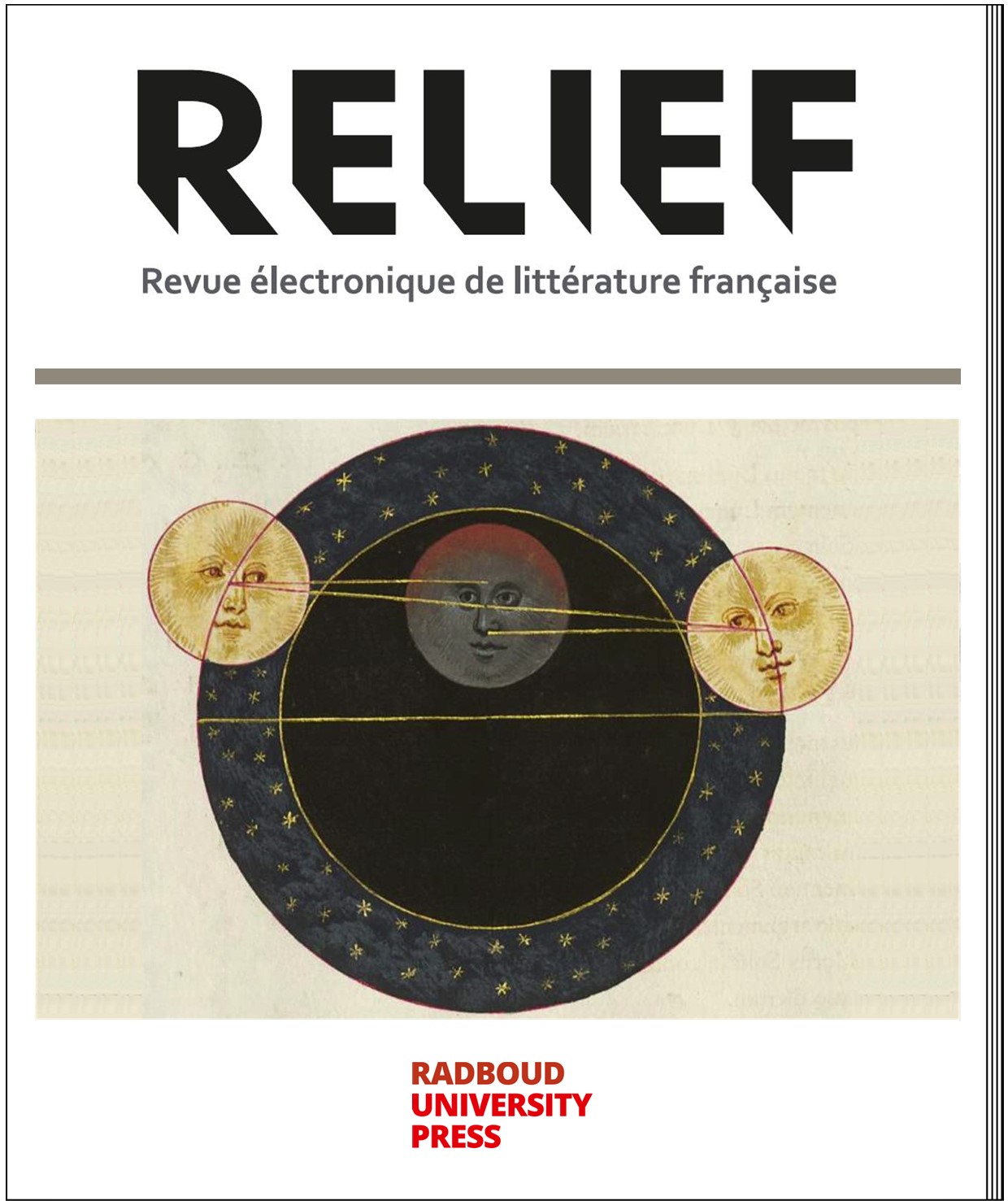
(Re)translating the French classics
Vol. 15 No. 1 (2021)Edited by Maaike Koffeman and Marc Smeets
This issue of Relief is dedicated to (re)translations of French literary classics. Special issue on retranslating the classics of French literature. Possessing a high amount of cultural and symbolic value, the literary classic seems to be a solid editorial and commercial asset. As a result, it often gives rise to multiple reissues and retranslations, which present themselves as being "better" than their predecessors. But to consider retranslation as a response to textual aging would be far too simplistic a perspective. This thematic dossier brings together a number of case studies that highlight the diversity of potential motifs for retranslation.
-
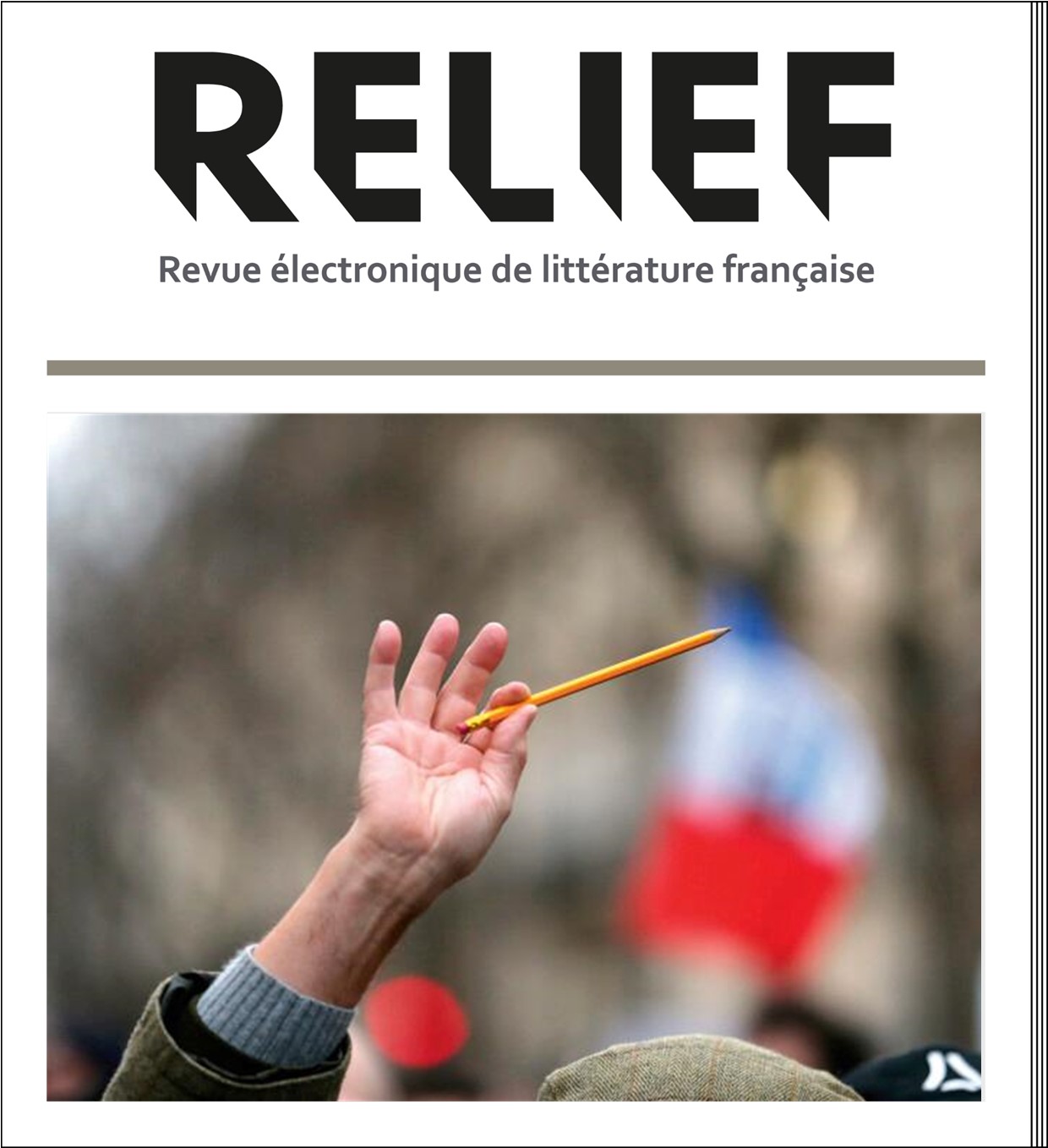
The sociology of literary mediation
Vol. 14 No. 2 (2020)Edited by Maaike Koffeman and Olivier Sécardin
In this thematic issue of Relief, a dozen researchers present case studies that demonstrate and analyze the dynamics of relationships between authors, actors, institutions and readers. While recognizing the importance of traditional mediators and more or less institutionalized places of sociability and exchange, this issue also explores the new forms and discourses of literary mediation that are emerging online, especially in this time of confinement and social distancing. To conclude this thematic dossier, we propose two interviews devoted to the backstage of two instances of literary mediation within the literary field of French-speaking Belgium. -
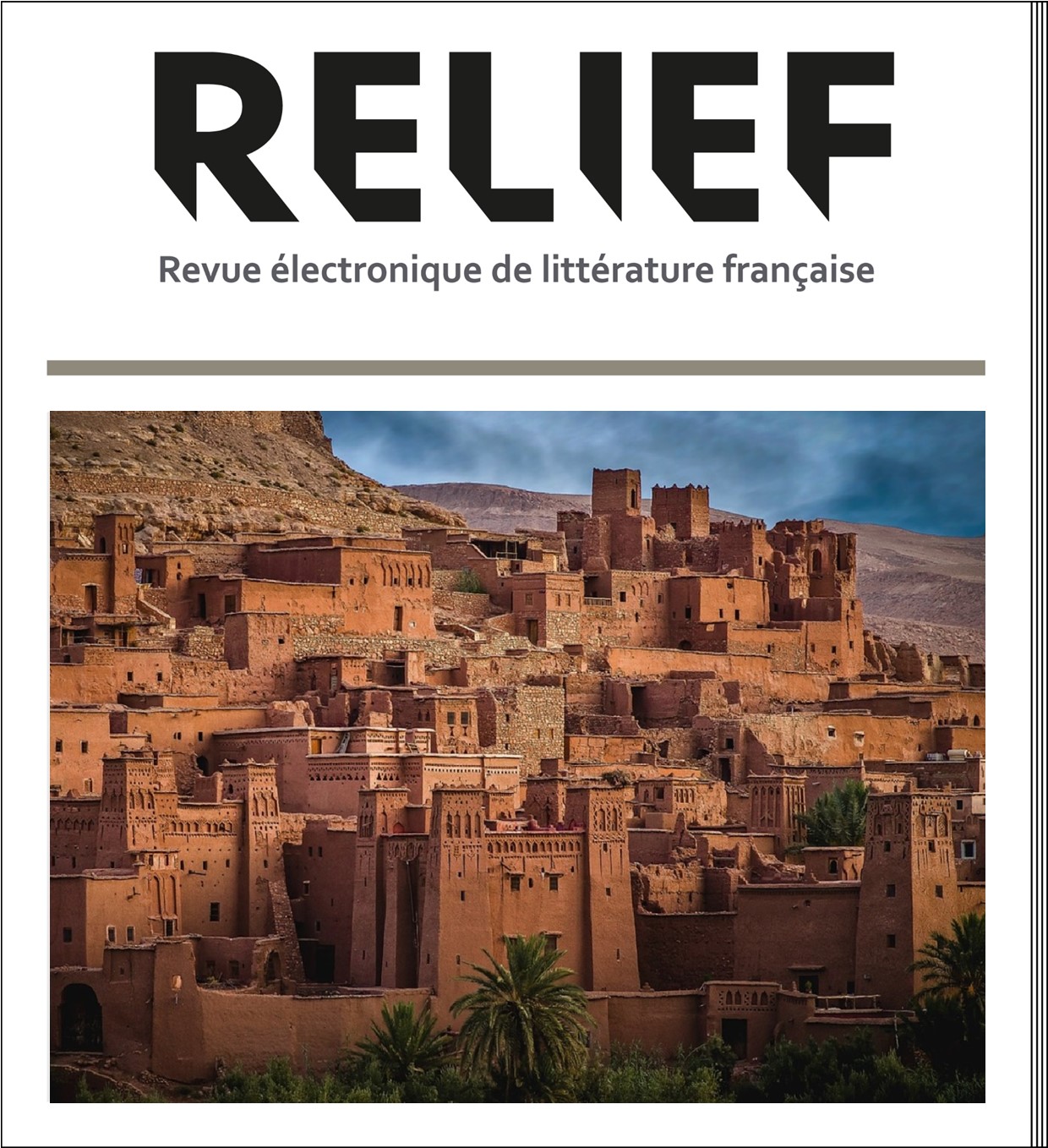
Francophone Literatures in Morocco Today
Vol. 14 No. 1 (2020)Edited by Annelies Schulte Nordholt and Emmanuelle Radar
Today's Moroccan francophone novel seems to be characterized by its focus on controversial issues. Rather than wisely holding its voice in the national cultural concert, this literature remains disconcerting: it willingly focuses on sensitive themes that have long remained taboo, such as sexuality, the Years of Lead, clandestine migration and, in general, the political and social shortcomings of contemporary Morocco. At the same time, today's Moroccan writers are working on a renewal of the imaginary and of literary forms. It is their own voice that this issue of Relief wishes to make heard. Myriam Alaoui, Mokhtar Chaoui, Youssouf Amine Elalamy, Fouad Laroui, Mohamed Nedali, Abdelhak Serhane, and Abdellah Taïa are all writers who are at the forefront of Moroccan literature today and whose works are studied here in their specificity. In addition, this issue offers three unpublished stories and a sociological essay on the challenges of publishing in Morocco. -
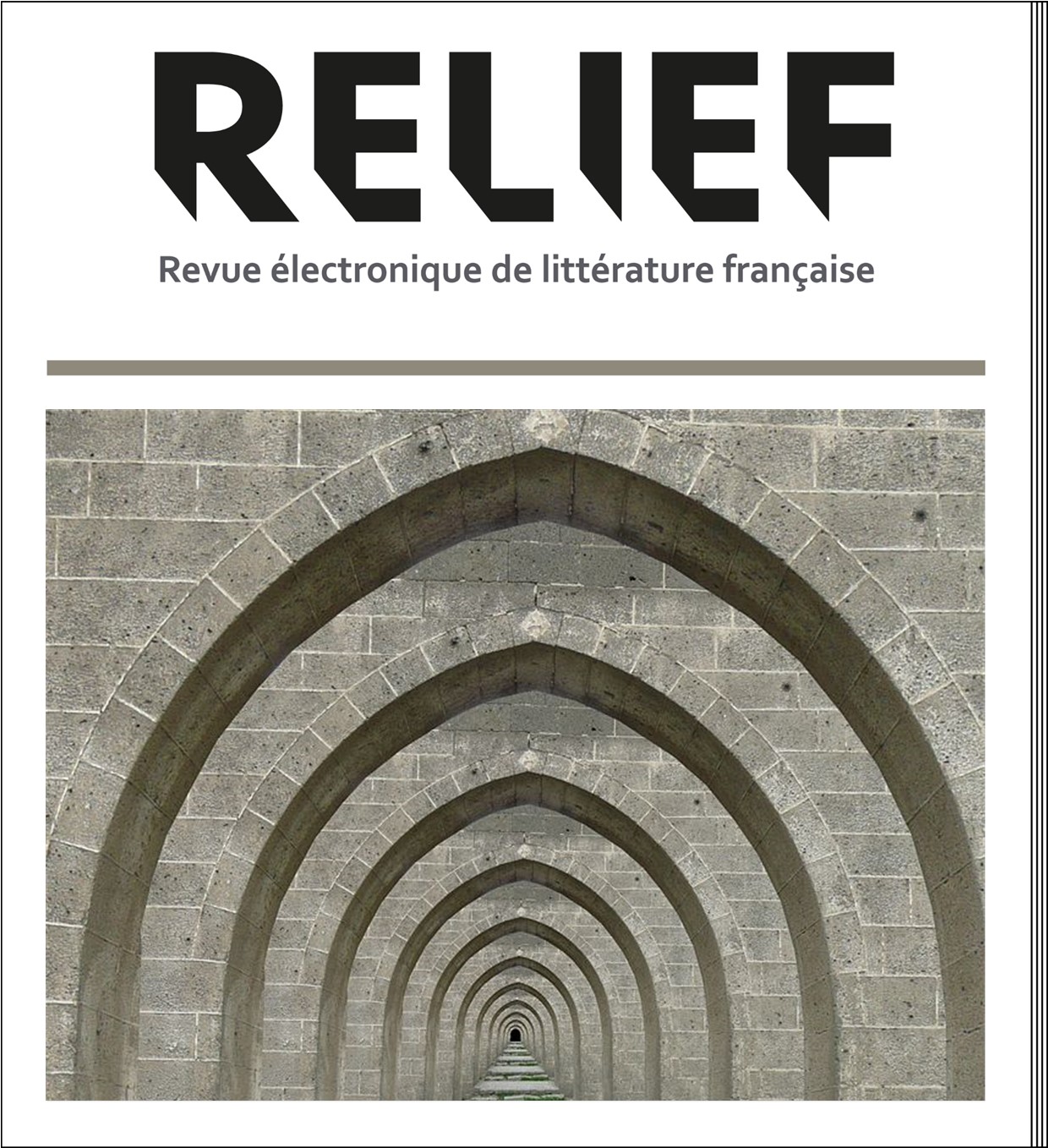
Thinking contemporary metanarrativity
Vol. 13 No. 2 (2019)Edited by Sabine van Wesemael
The notion of metafiction or metanarrative was introduced in 1970 by William Gass and involves textual self-observation and self-reflection. The term is often explicitly linked to postmodernism, but in fact metafiction is a constant in the history of the novel. The contemporary novel often resorts to metafiction, as the articles in this issue illustrate.
-

Implied literatures
Vol. 13 No. 1 (2019)Edited by Olivier Sécardin
This issue of Relief proposes to address the question of new literary realisms by studying the political and social devices of contemporary French narratives, or how narratives and texts elaborate the "common" and "democracy" for anonymous existences not a priori dedicated to literature. This line of research is an extension of the work of Bruno Blanckeman, Dominique Viart, Jacques Rancière and Sandra Laugier, and takes note of the critical advances that for some years now have been interested less in "engaged writing" than in "involved writing". It is also to consider a new metamorphosis of the "literary" and of the status or profession of writer. -
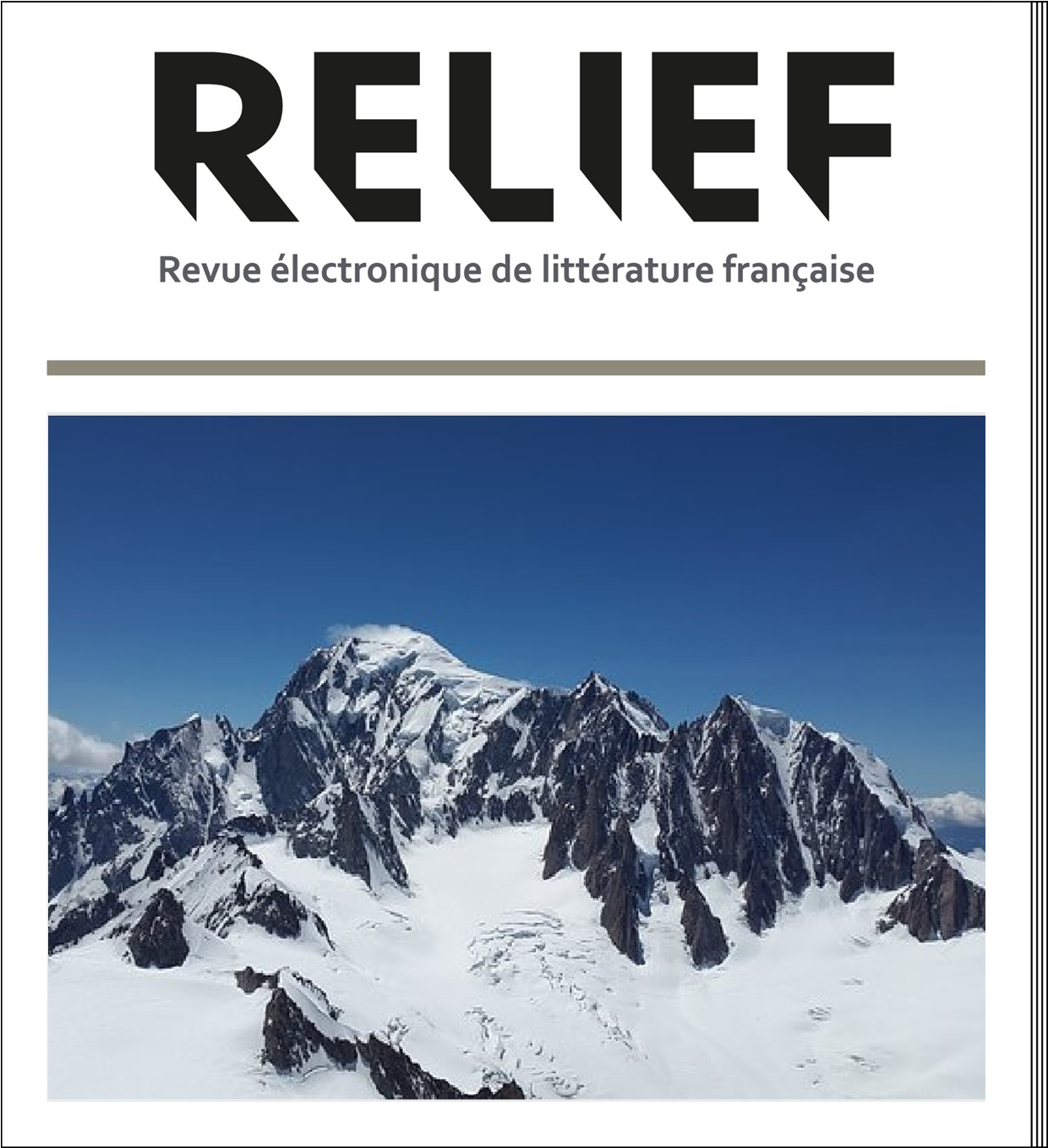
France and Italy: Cultural Exchanges
Vol. 12 No. 2 (2018)Edited by Els Jongeneel and Alisa van de Haar
-
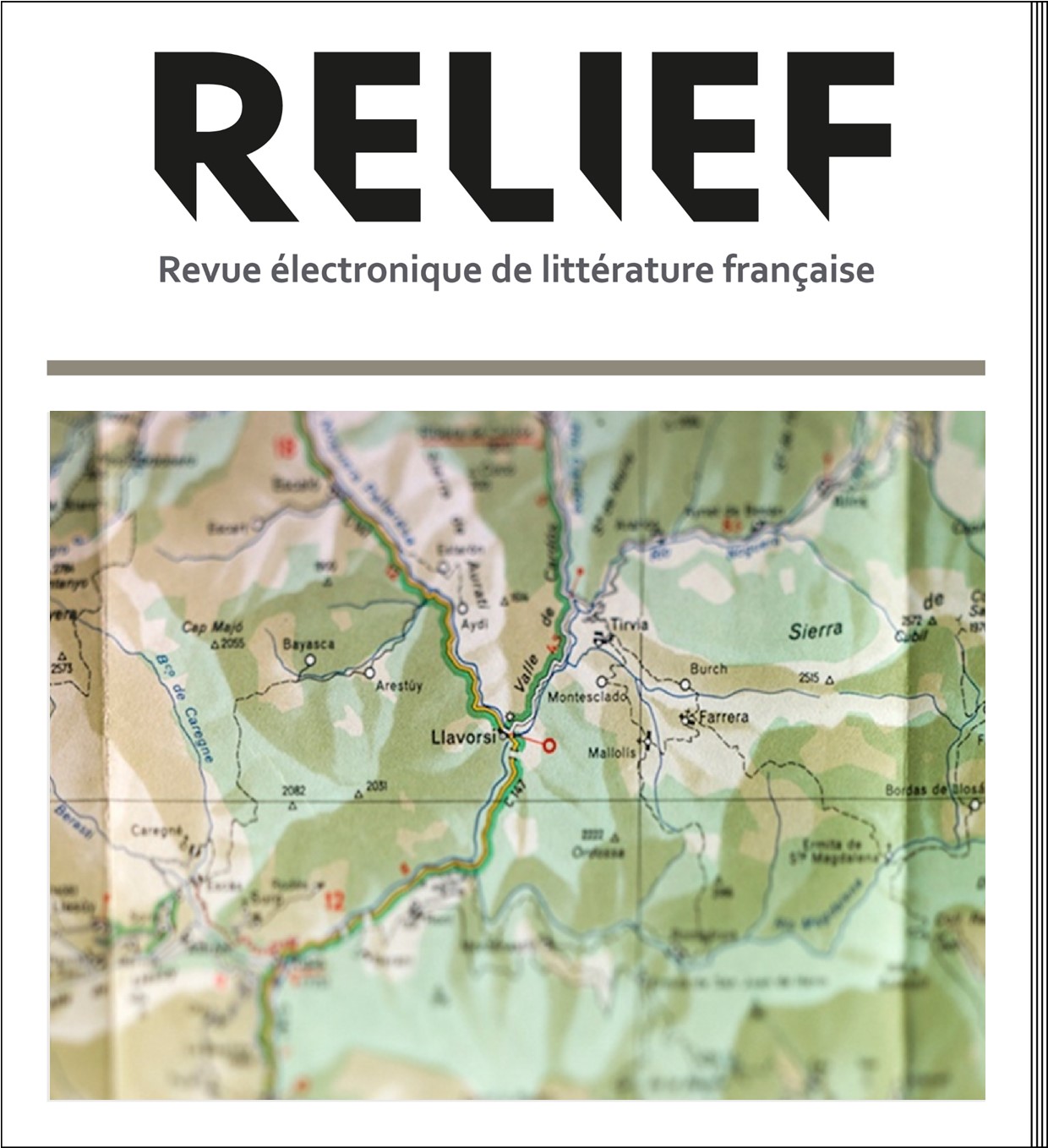
La Carte et le territoire Revisited
Vol. 12 No. 1 (2018)Edited by Sabine van Wesemael and Antoine Jurga
-
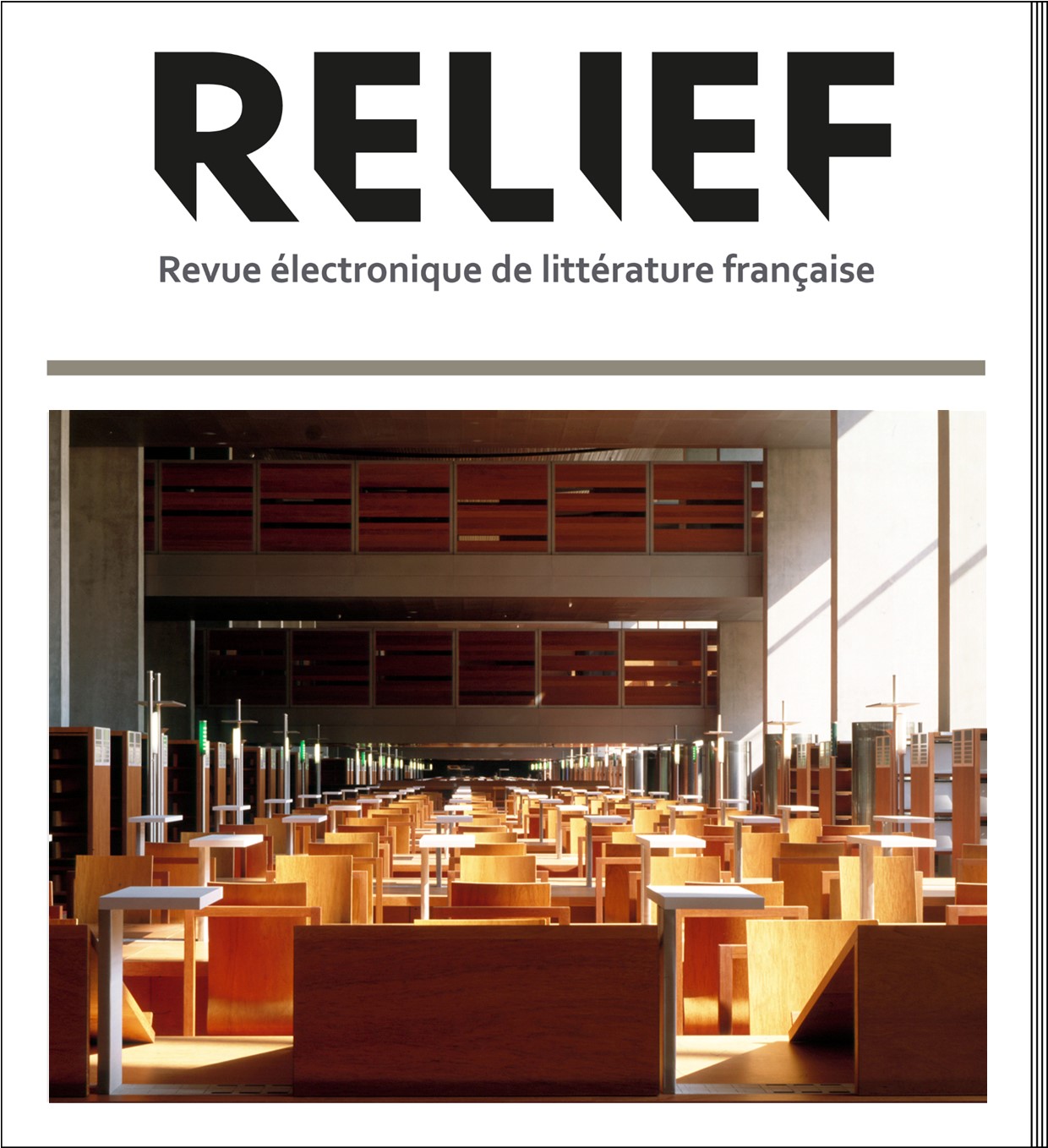
La Madone des Sleepings by Maurice Dekobra
Vol. 9 No. 1 (2015)Edited by Jan Baetens and Sjef Houppermans
-
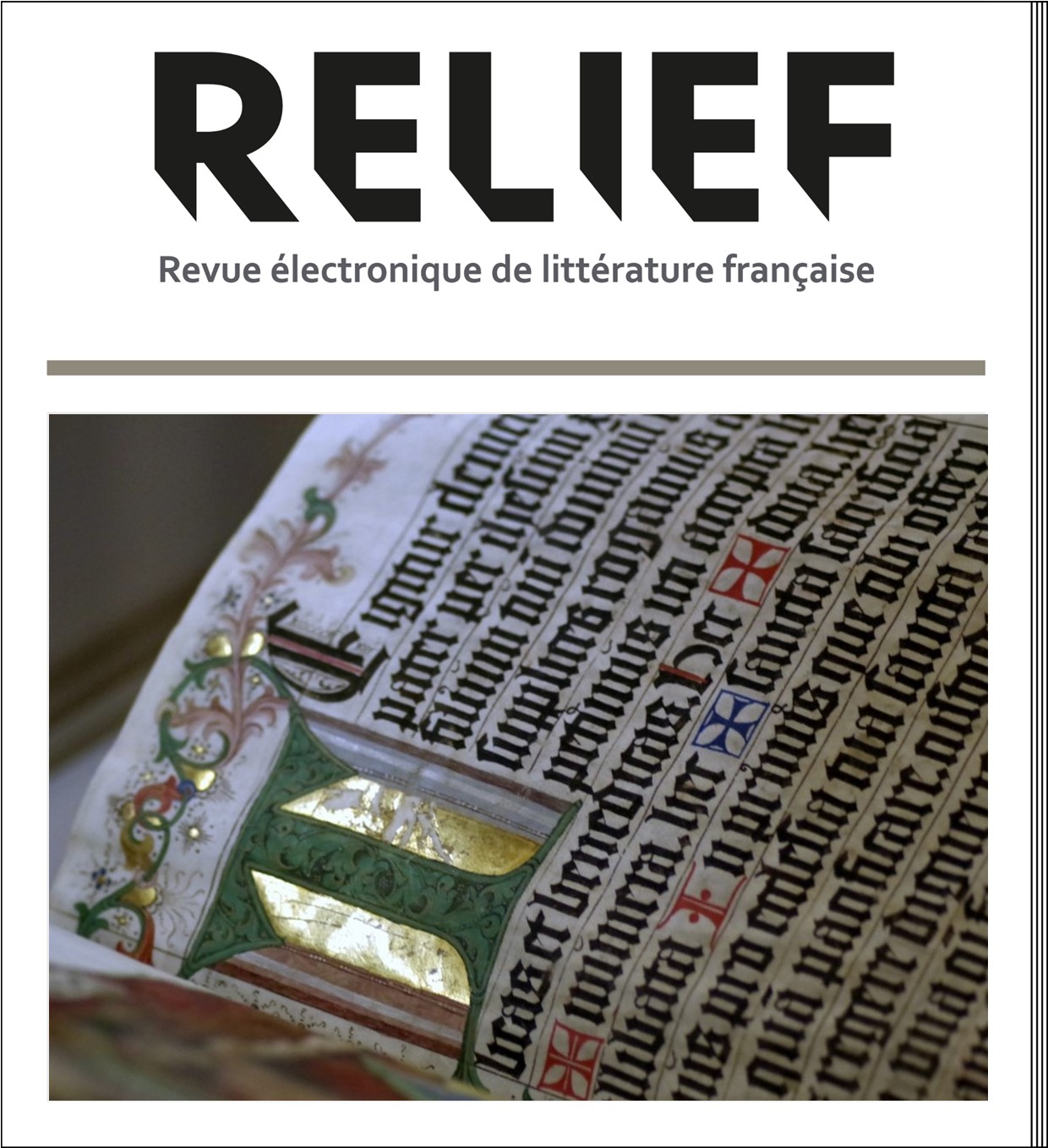
Speaking of the Medieval Today: French and Francophone Medievalisms
Vol. 8 No. 1 (2014)Edited by Alicia Montoya and Vincent Ferré
-
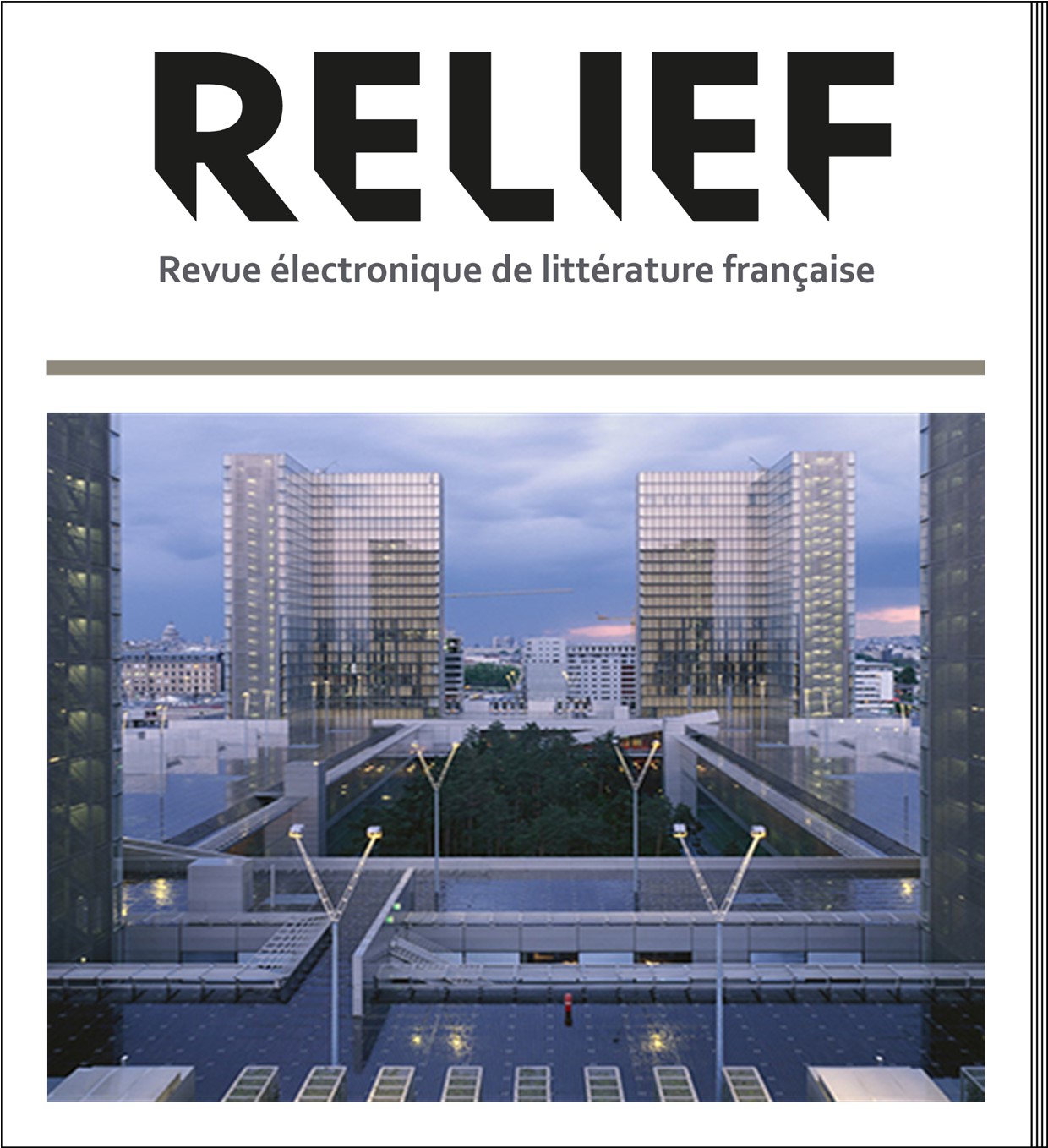
Laurent Mauvignier et Tanguy Viel. Two contemporary authors
Vol. 6 No. 2 (2012)Edited by Christine Jérusalem and Sjef Houppermans
-
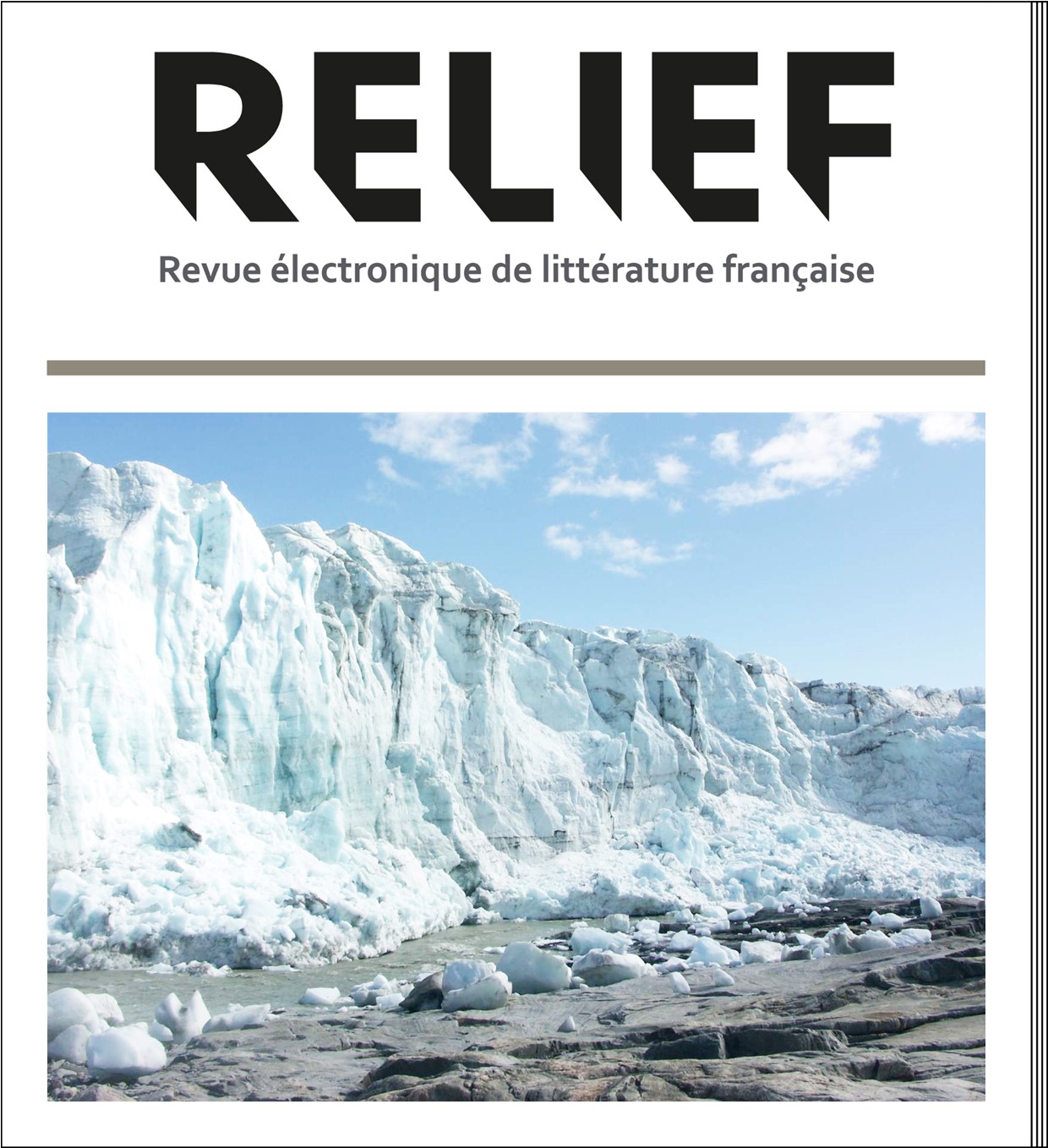
History movies / Transculturalities
Vol. 6 No. 1 (2012)Edited by Margriet Hoogvliet and Sjef Houppermans
-
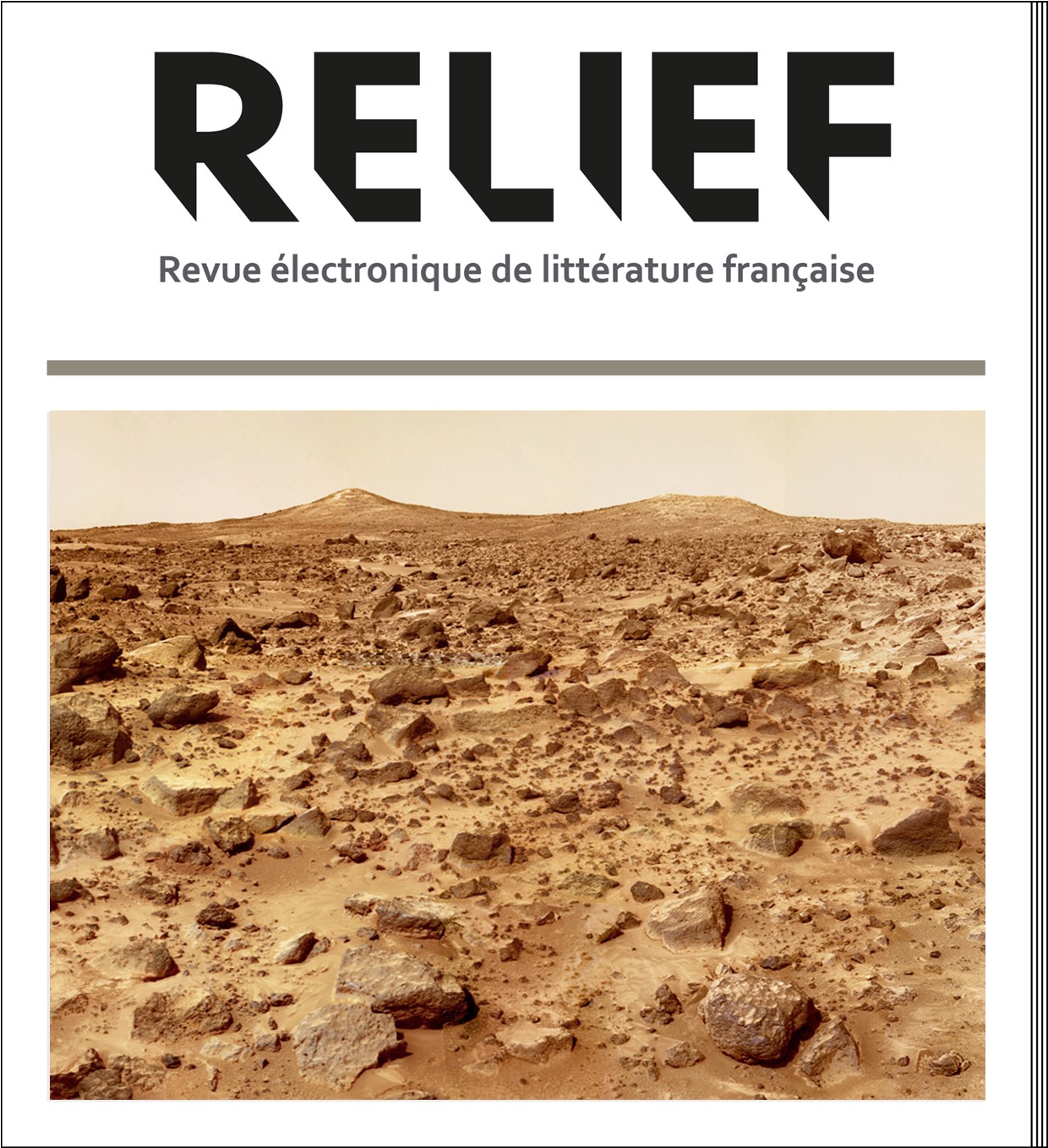
Francophonia from North to South: expressions of transculturalism in contemporary Francophone literature and drama
Vol. 5 No. 2 (2011)Edited by Anne-Marie Gans-Guinoune and Jeanette den Toonder
-
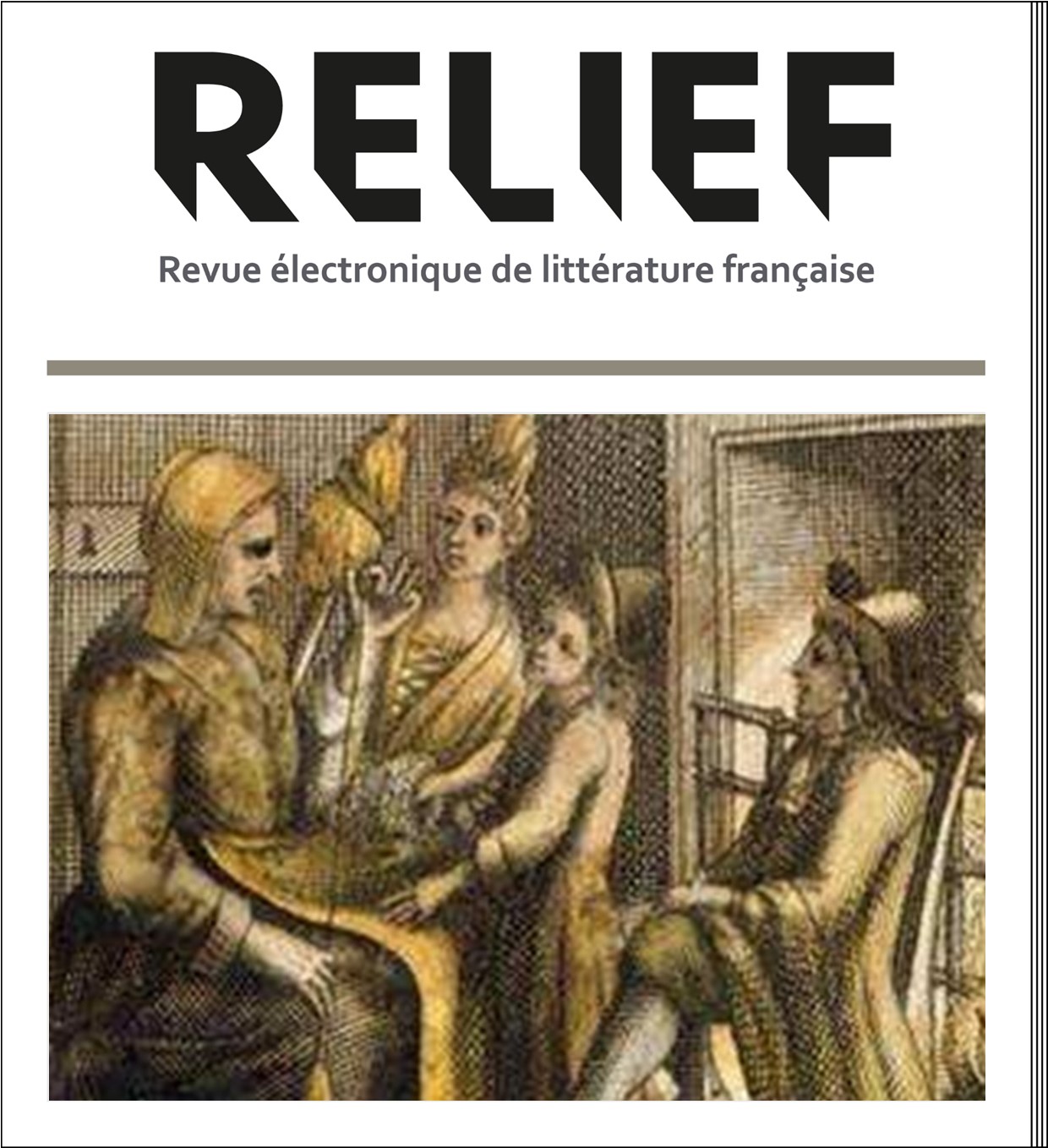
The magic of the image: textual and visual images in fairy tales
Vol. 4 No. 2 (2010)Edited by Daphne M. Hoogenboezem, Alicia C. Montoya and Sjef M.M. Houppermans
-
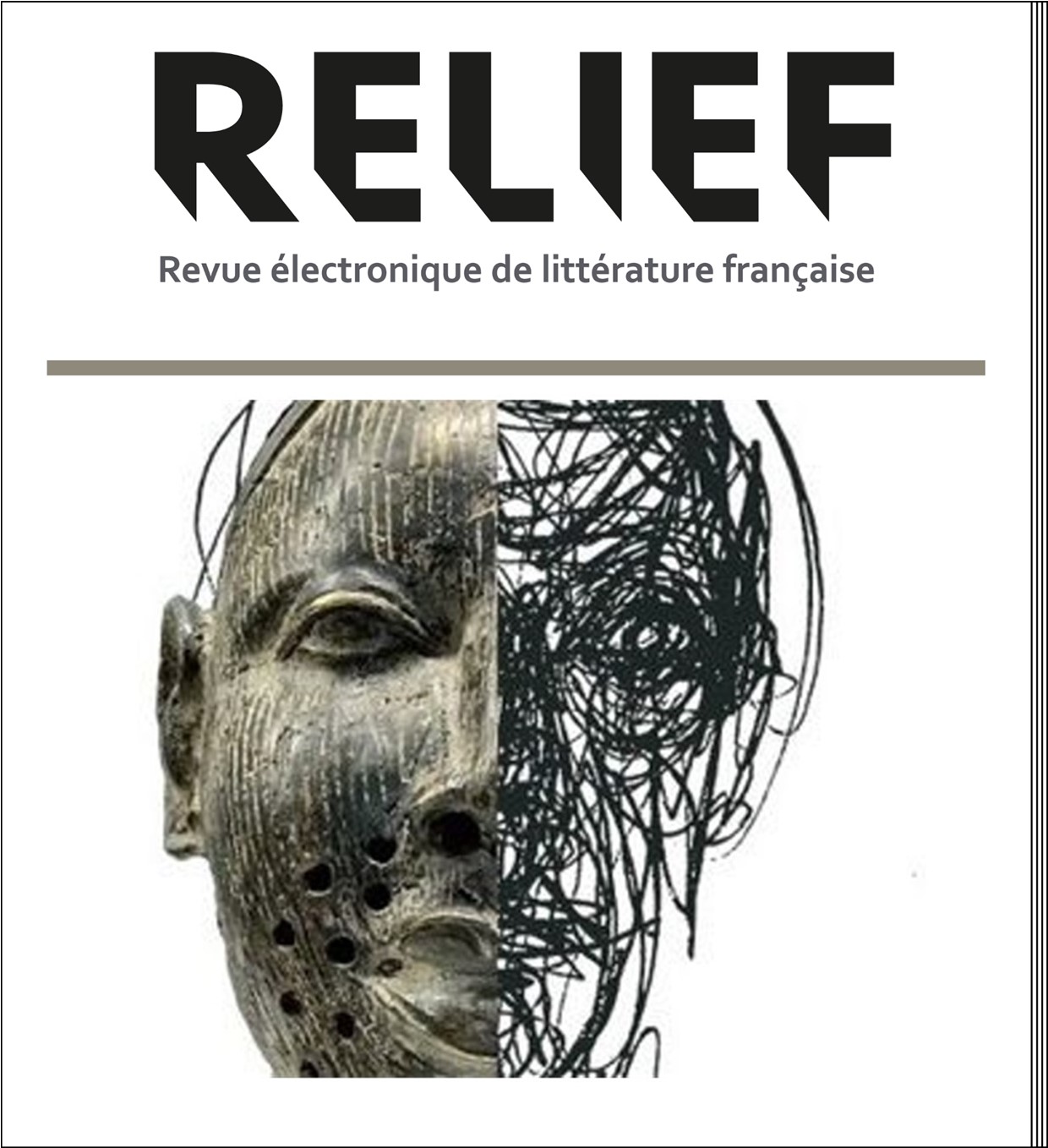
Identity and Alterity in Marguerite Yourcenar
Vol. 2 No. 2 (2008)Edited by Rémy Poignault and Maurice Delcroix

